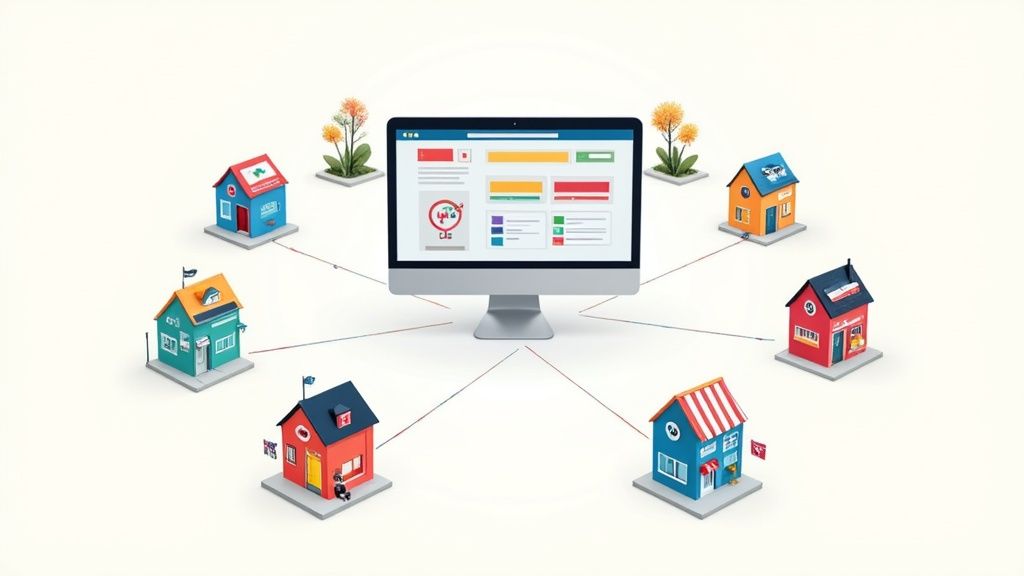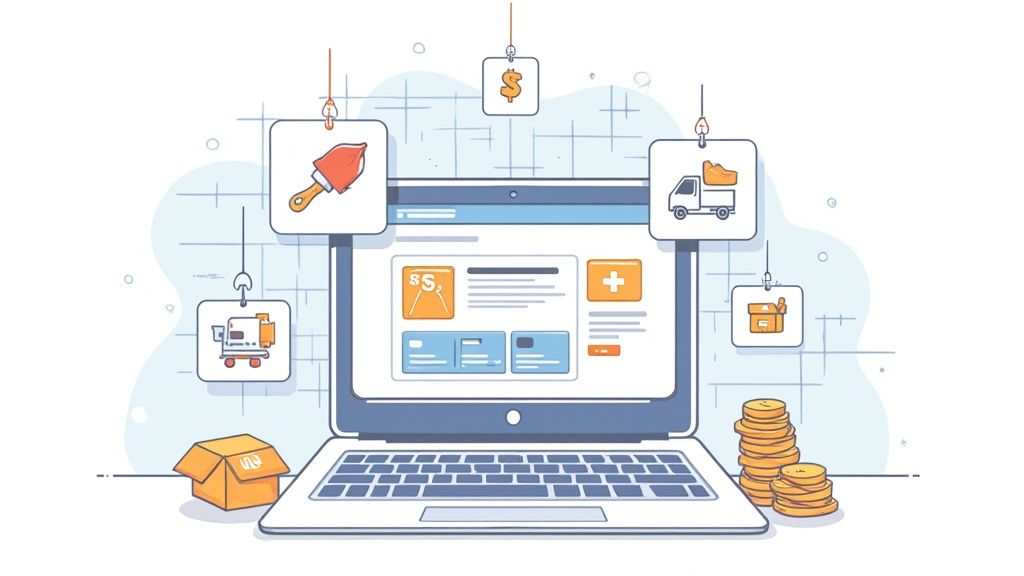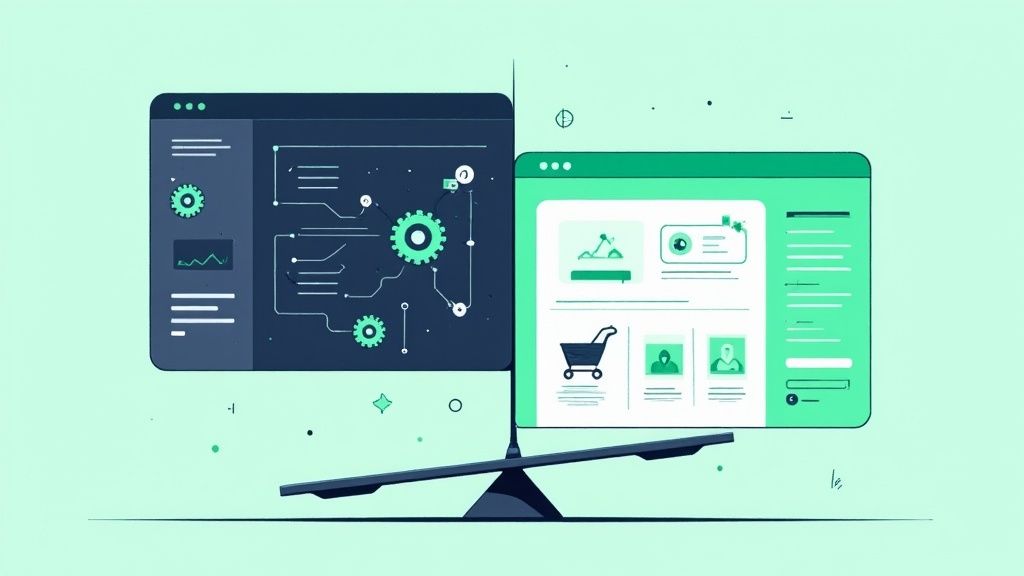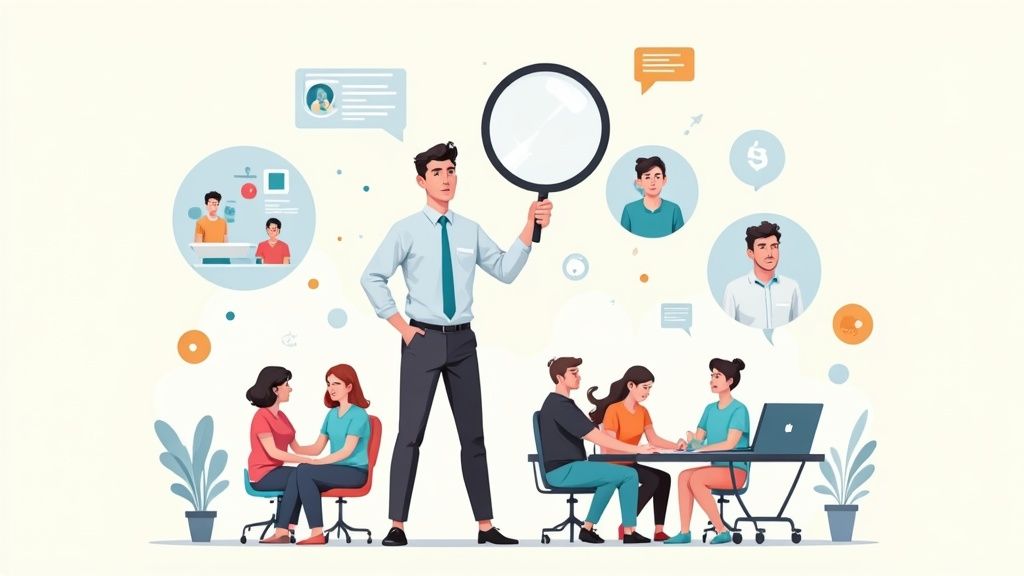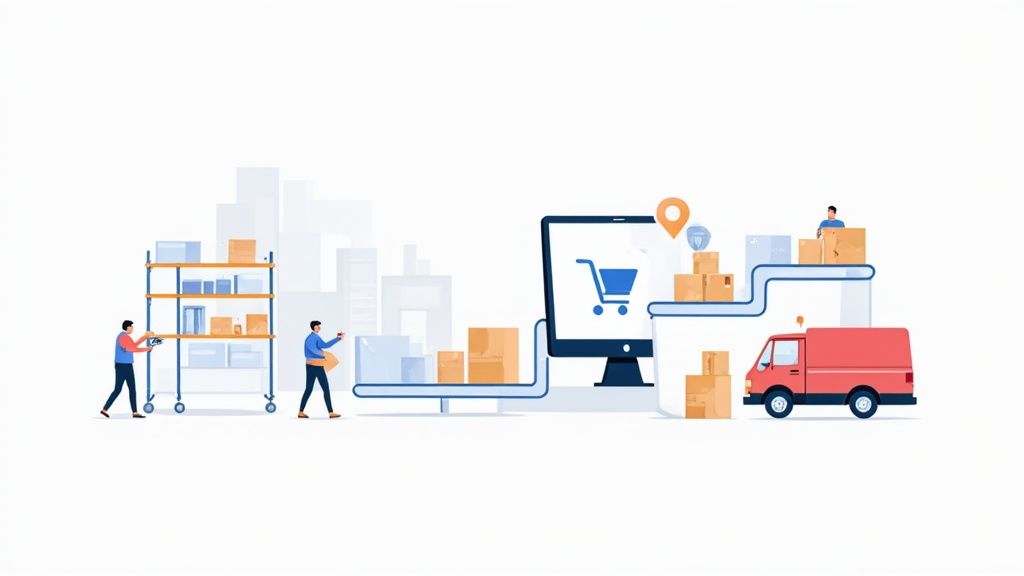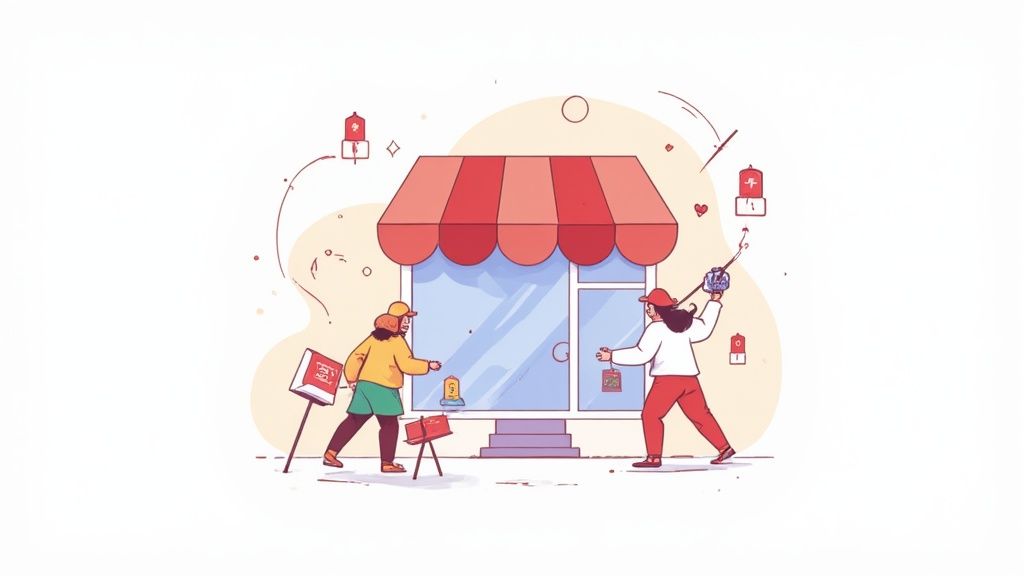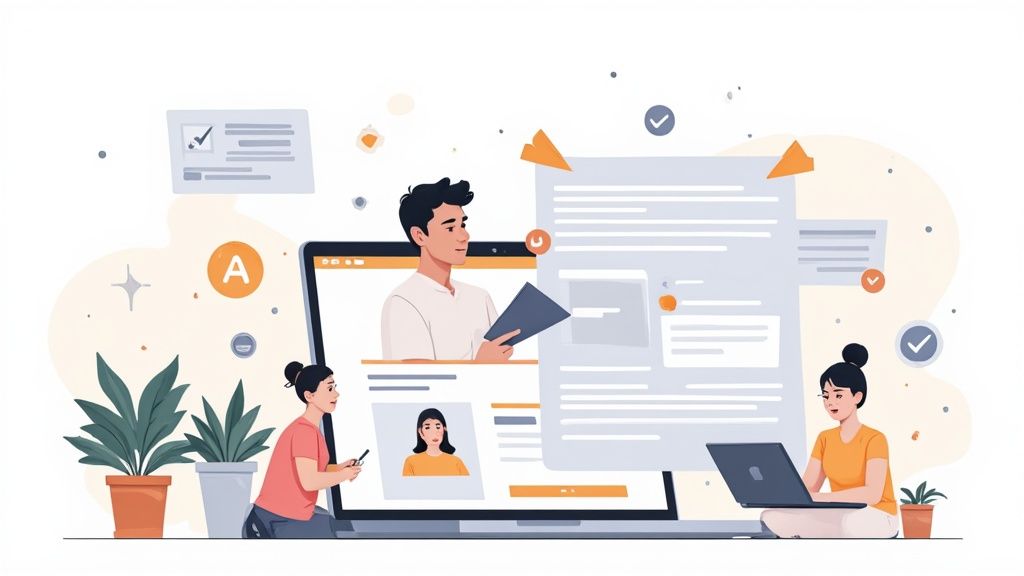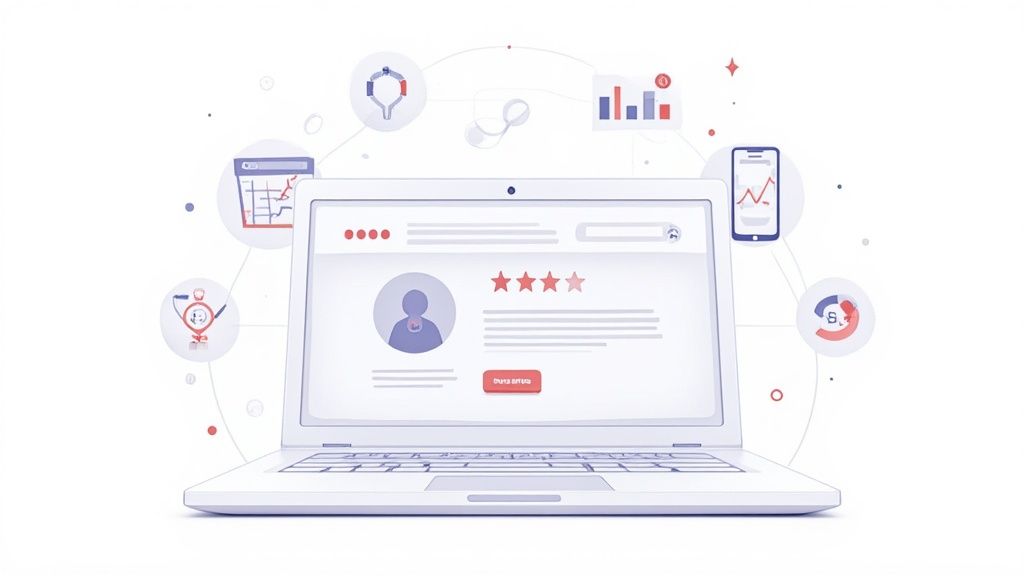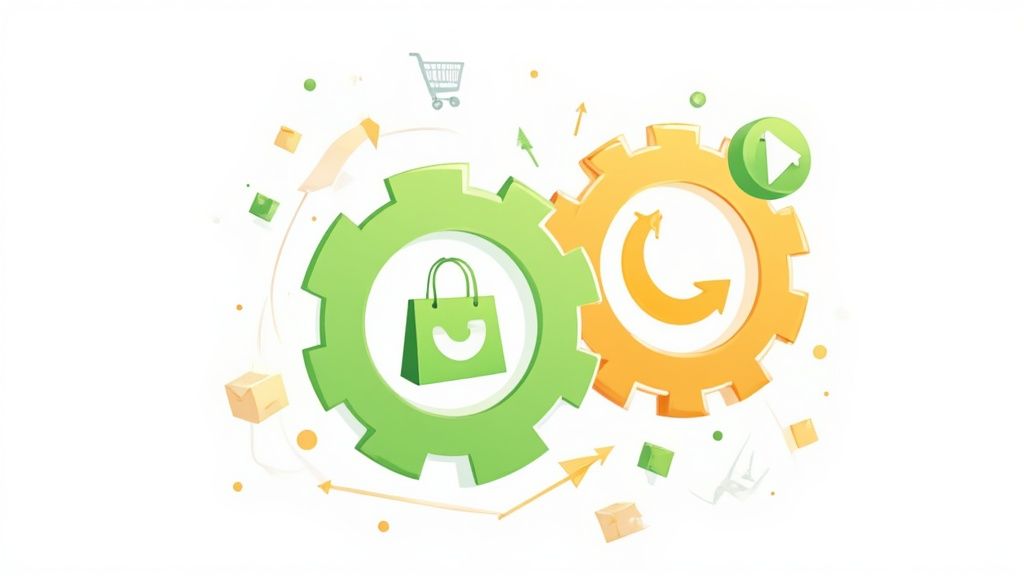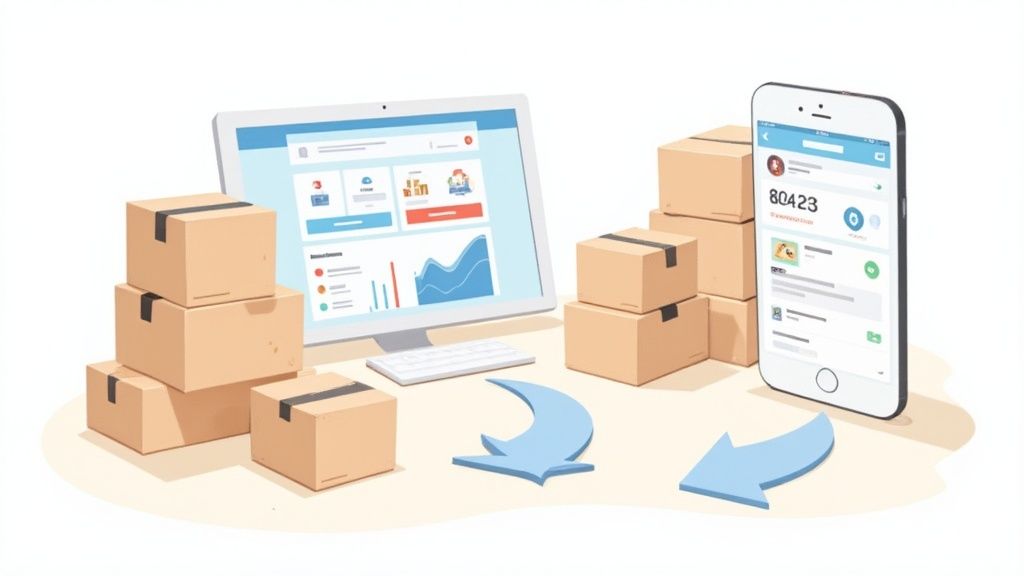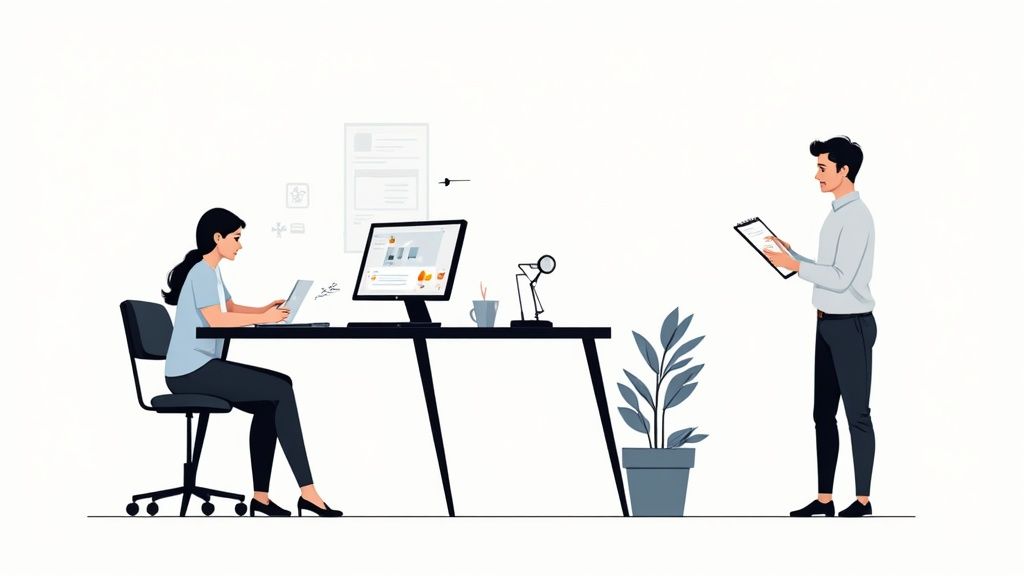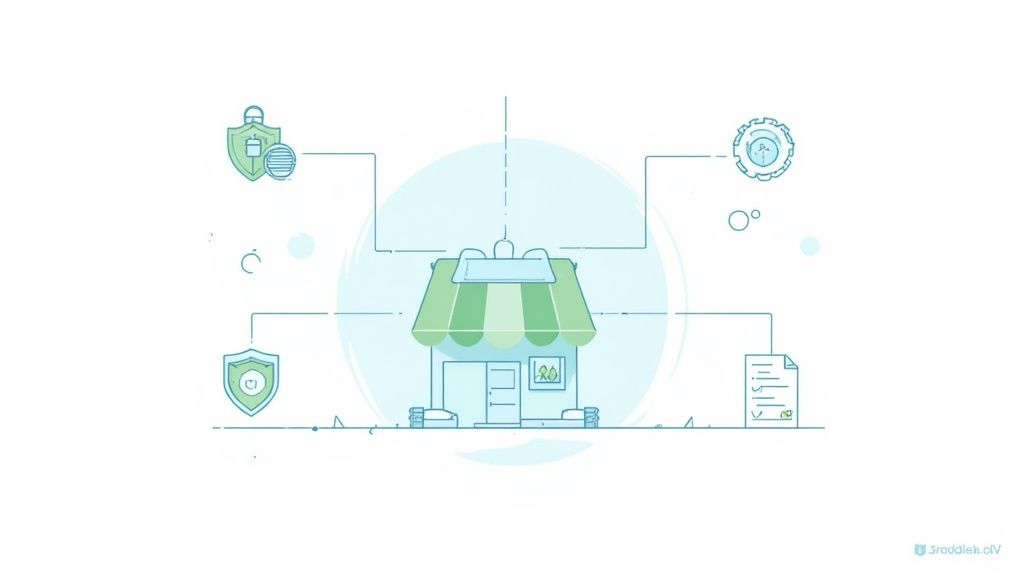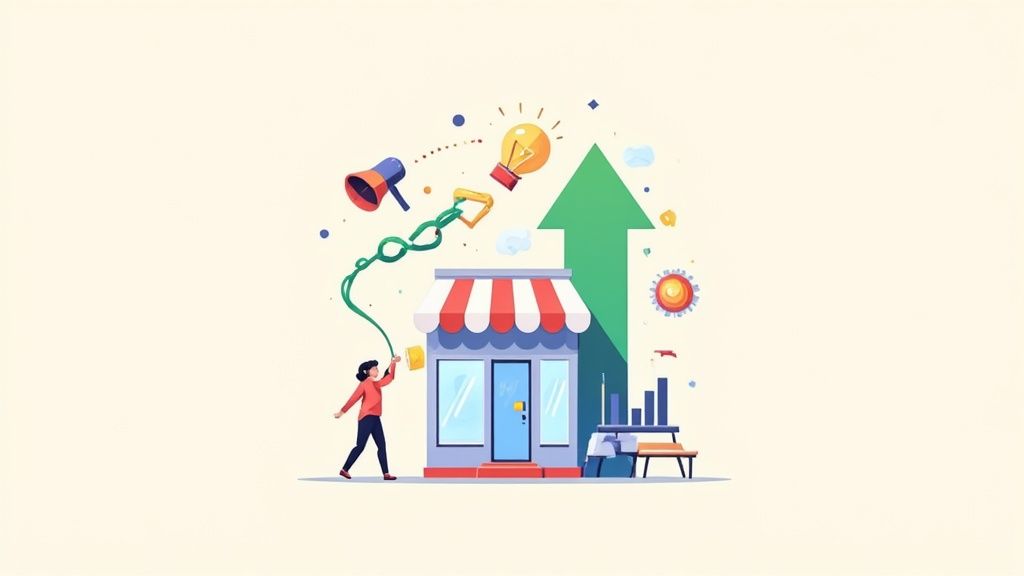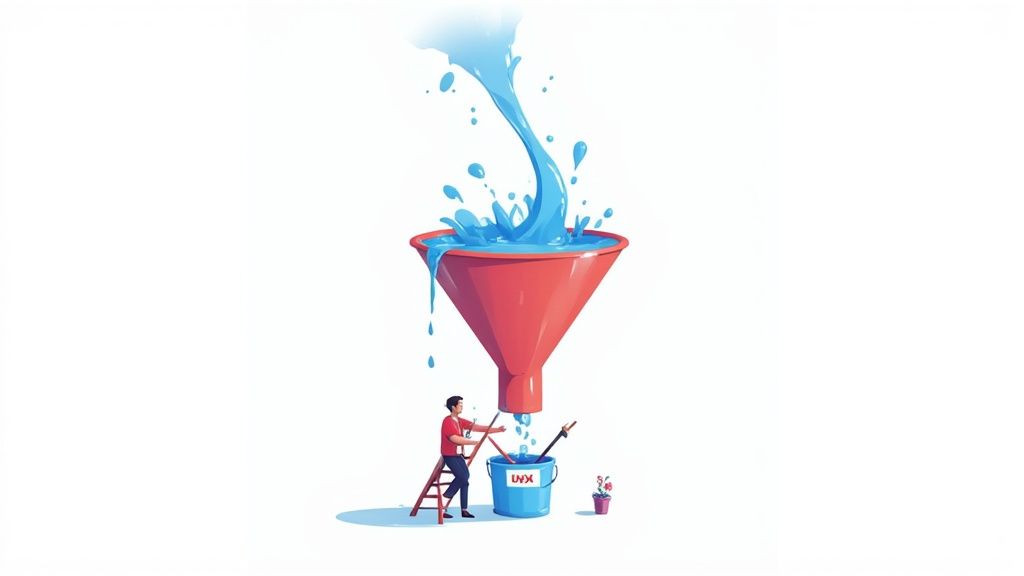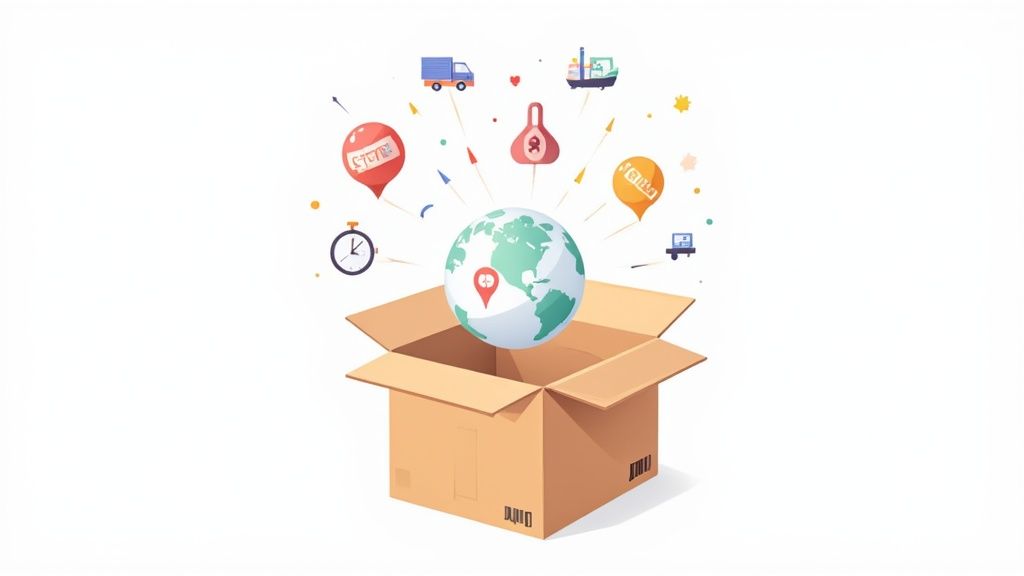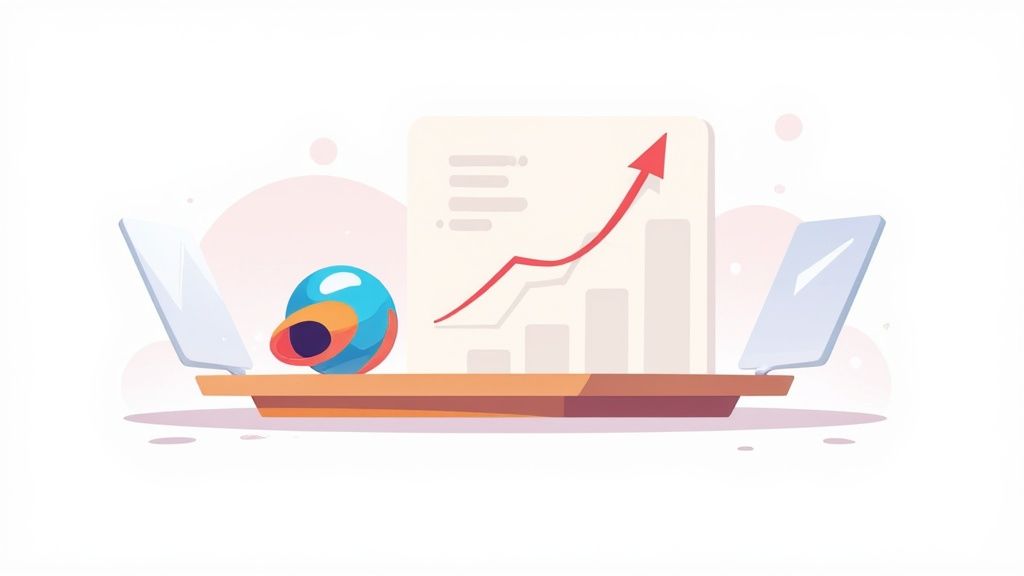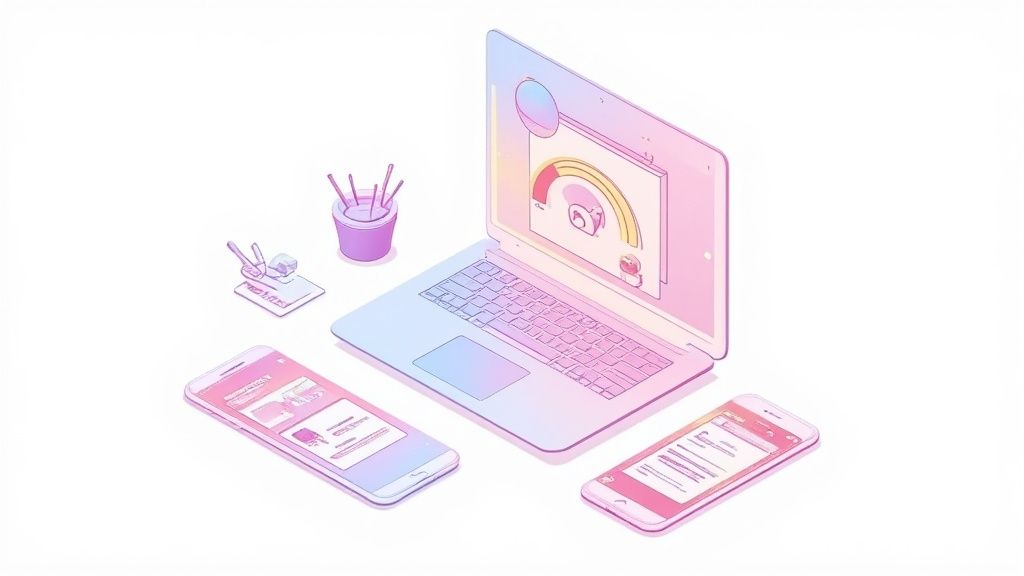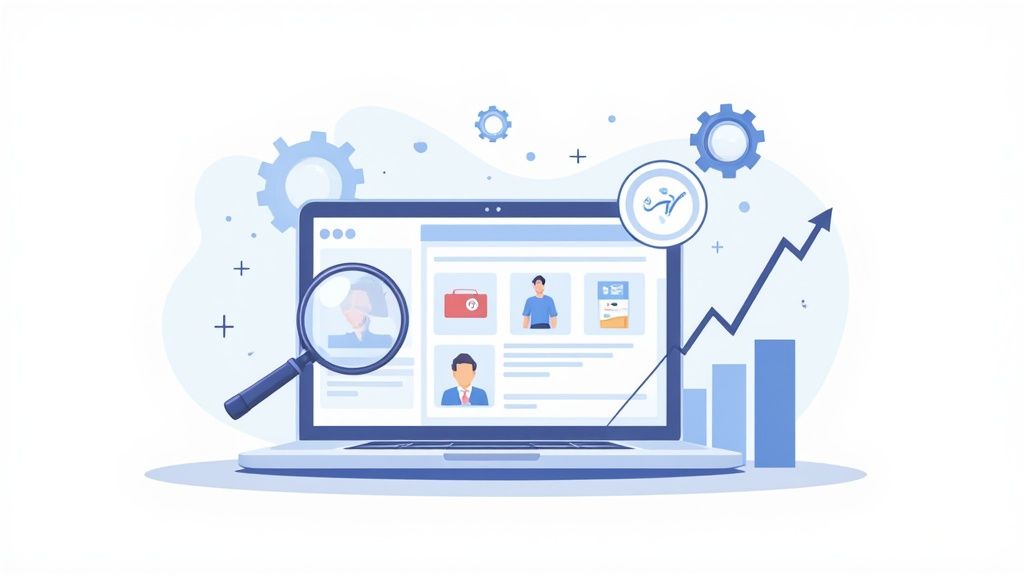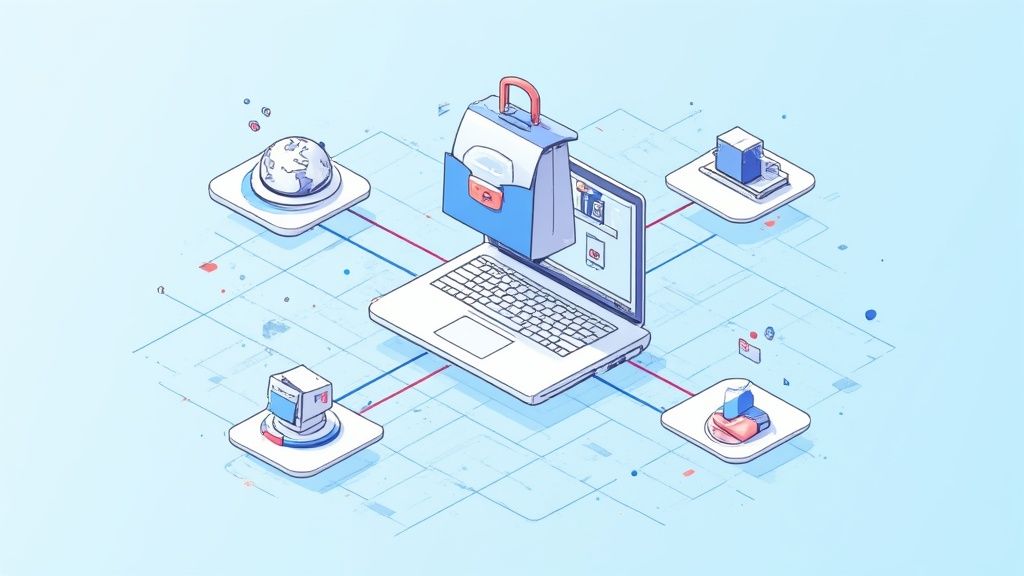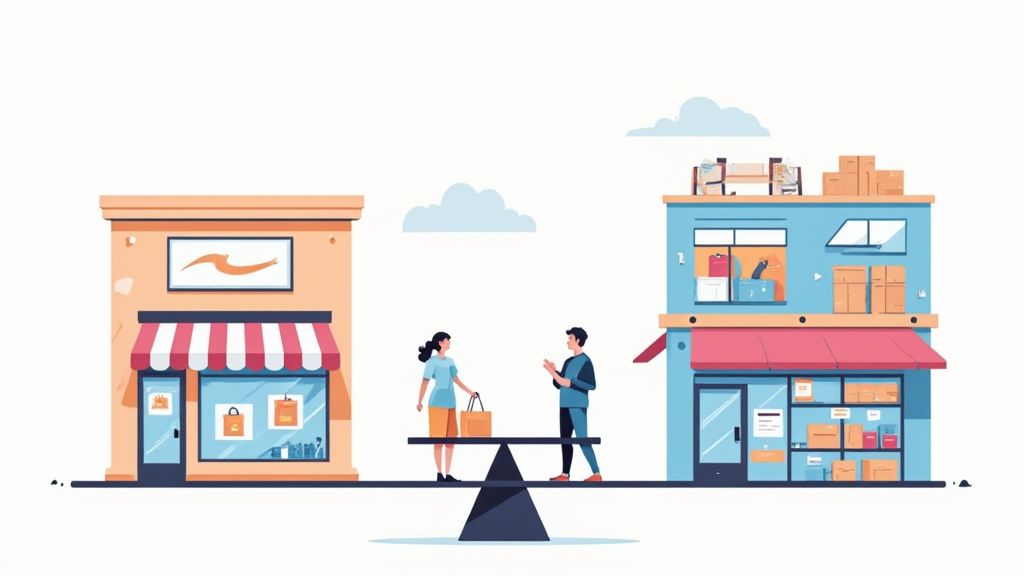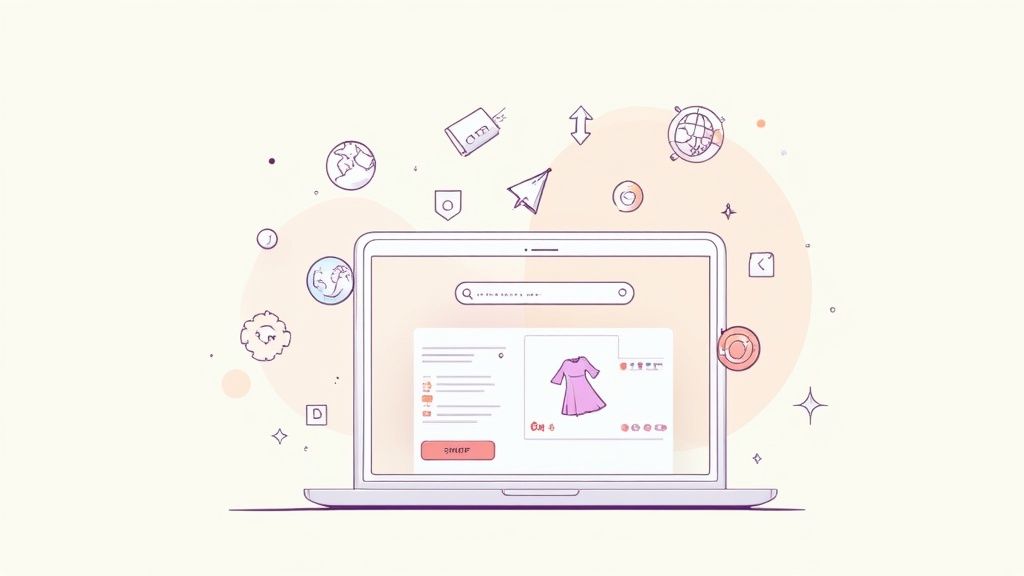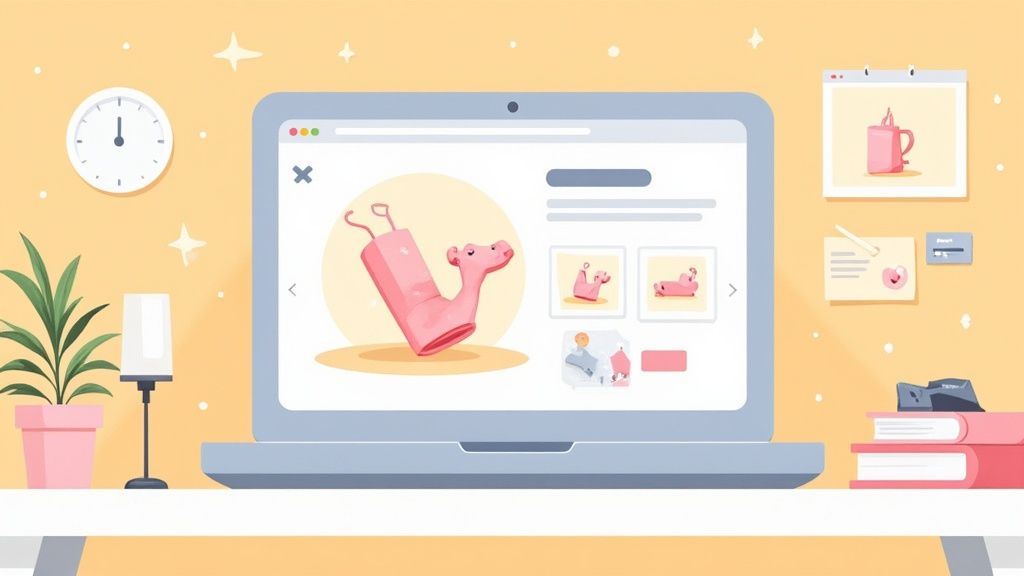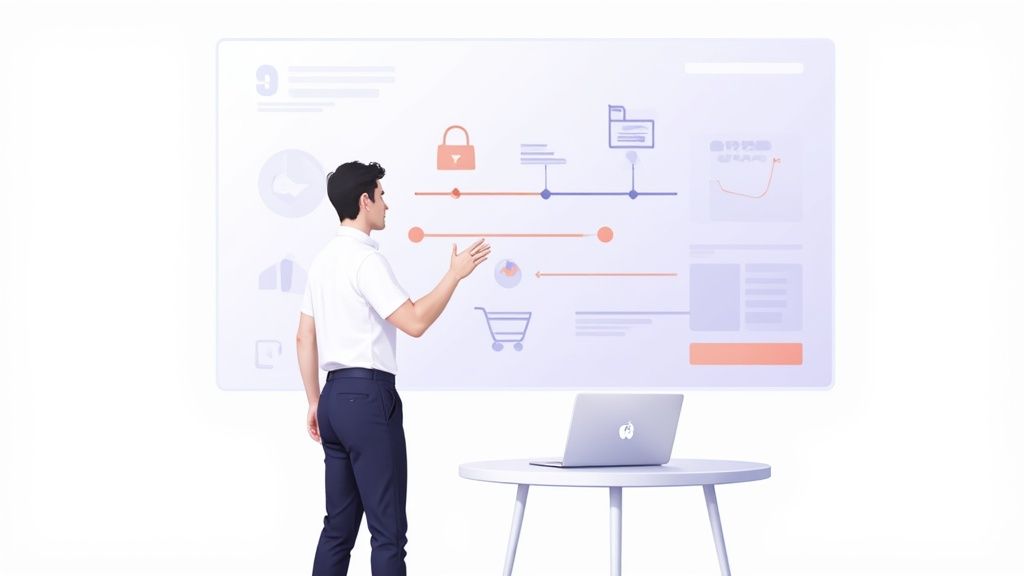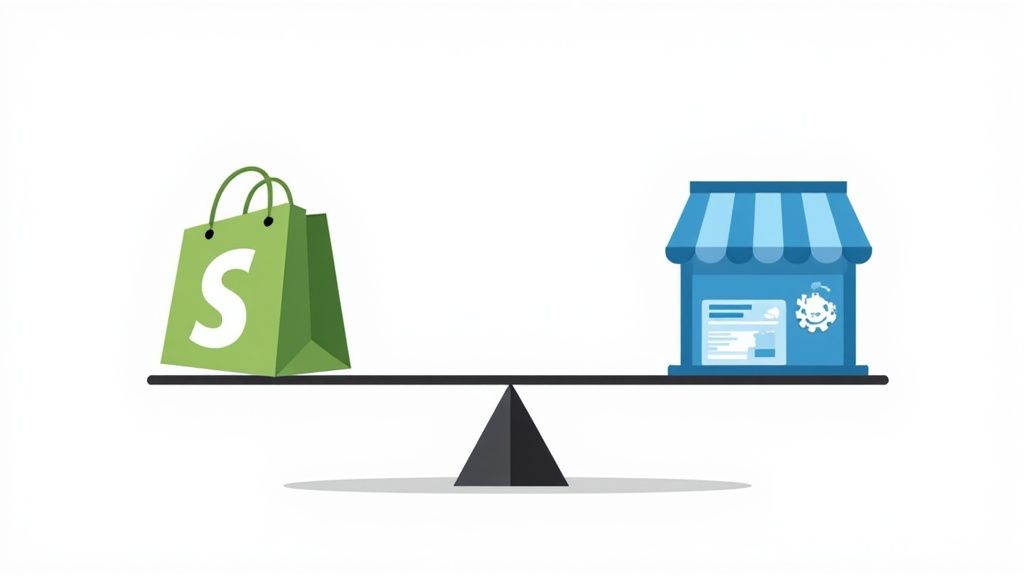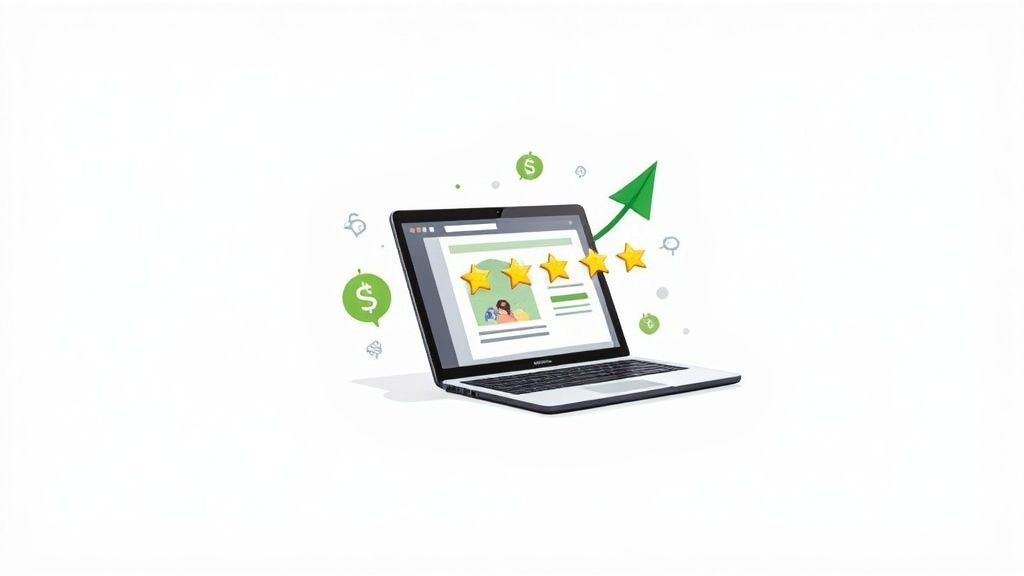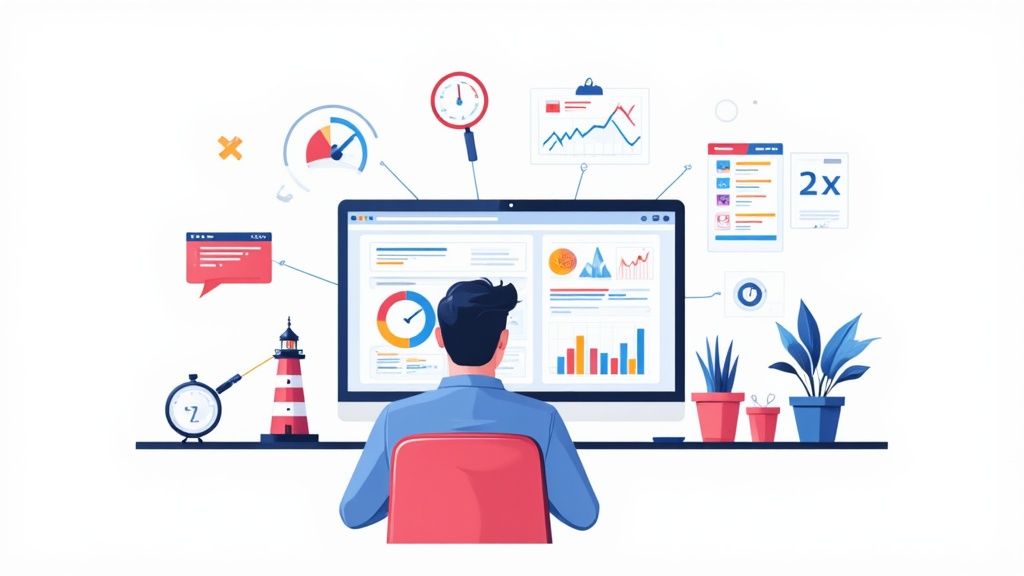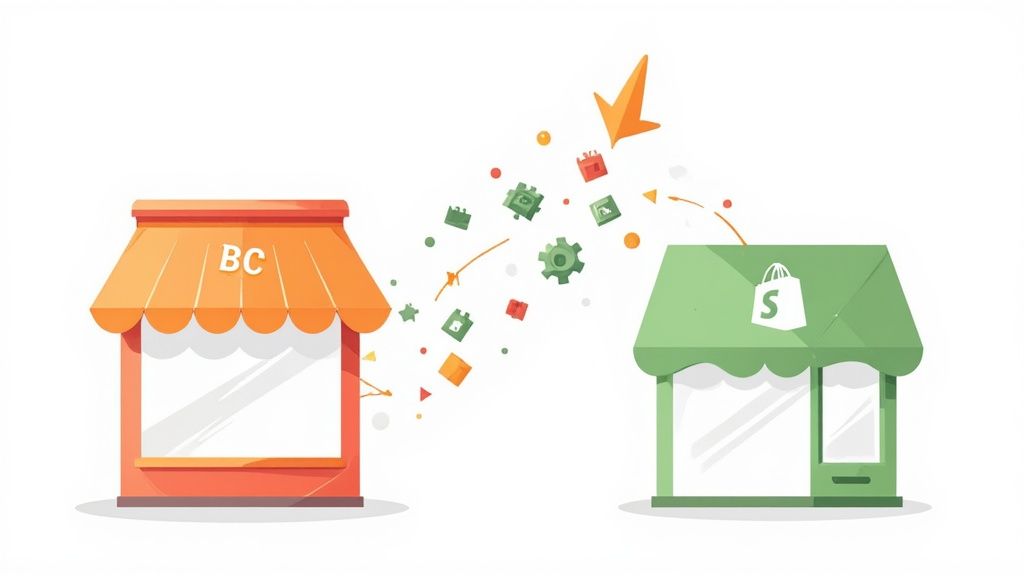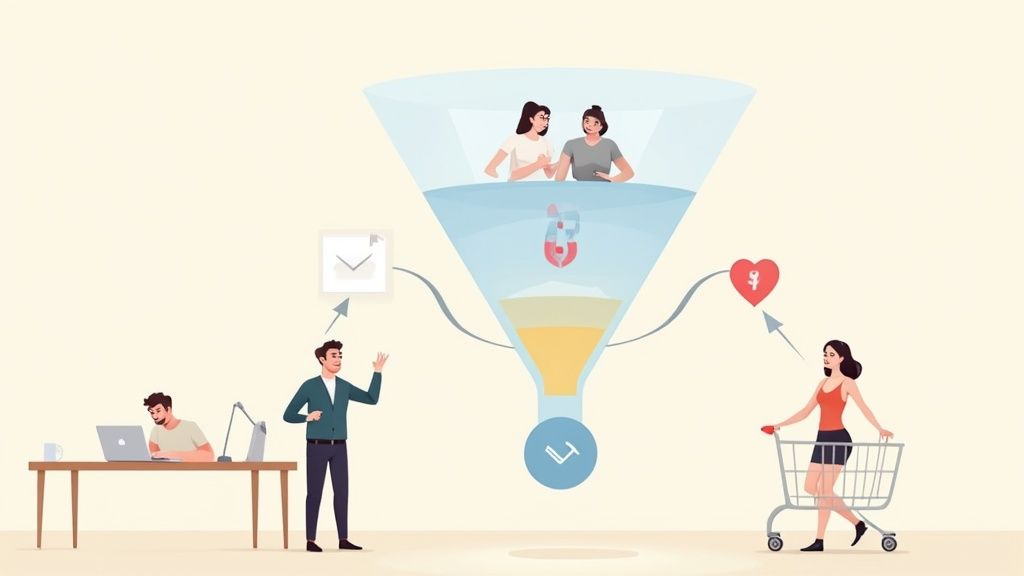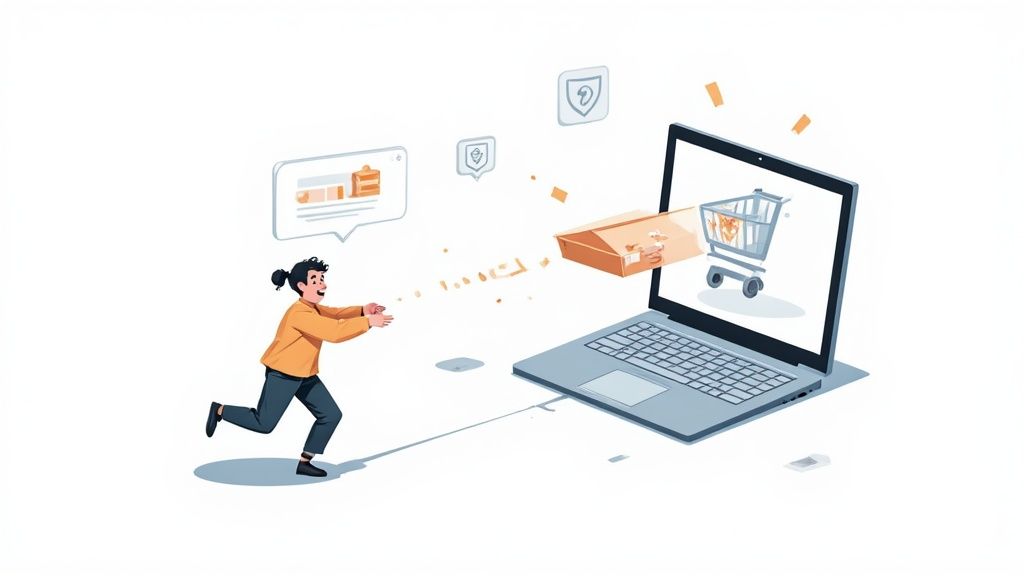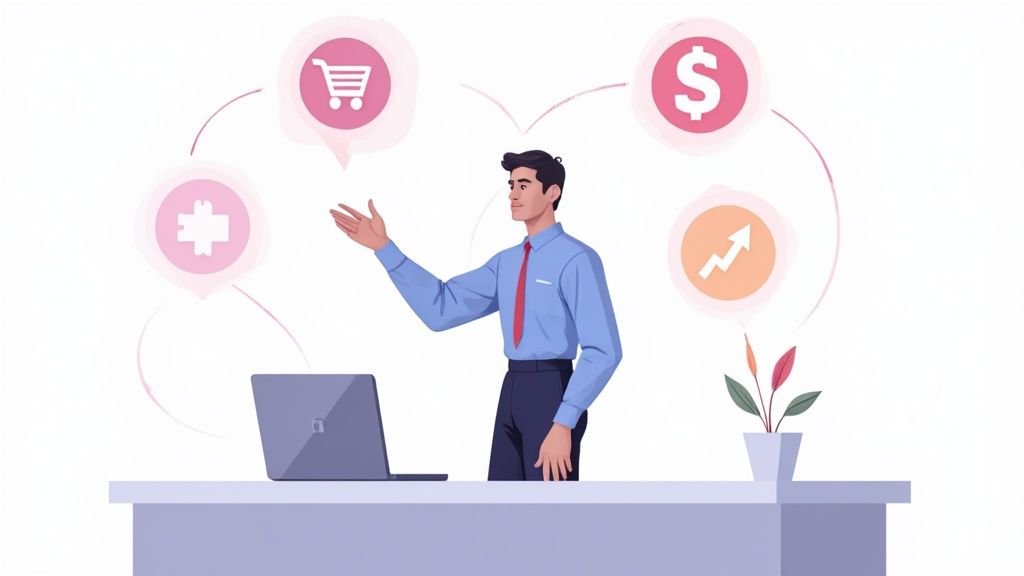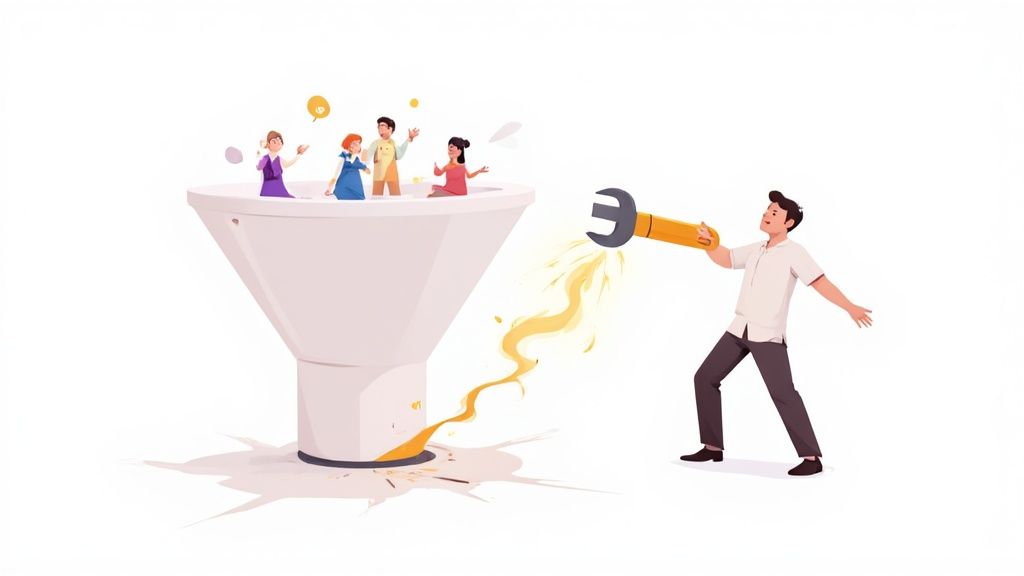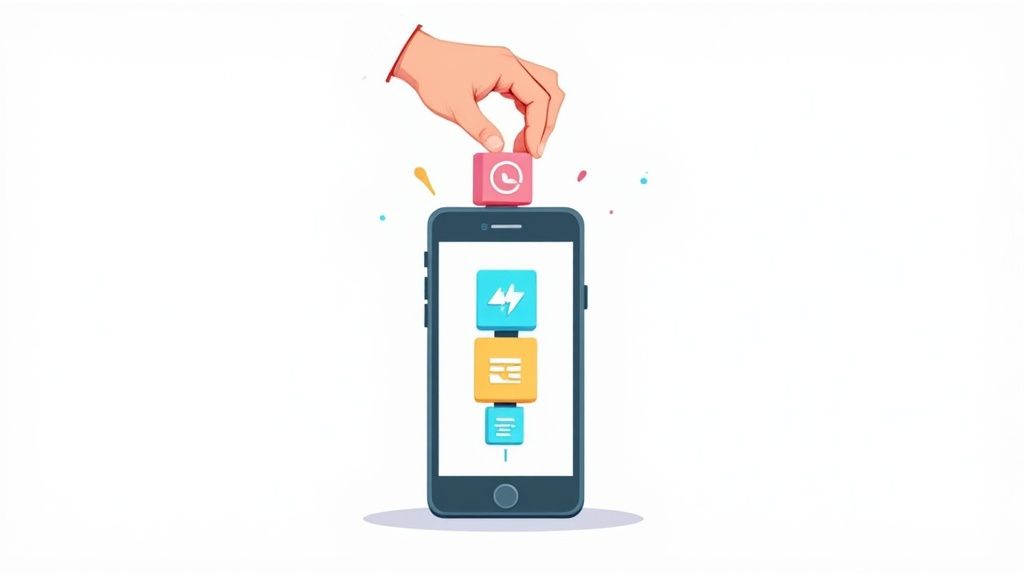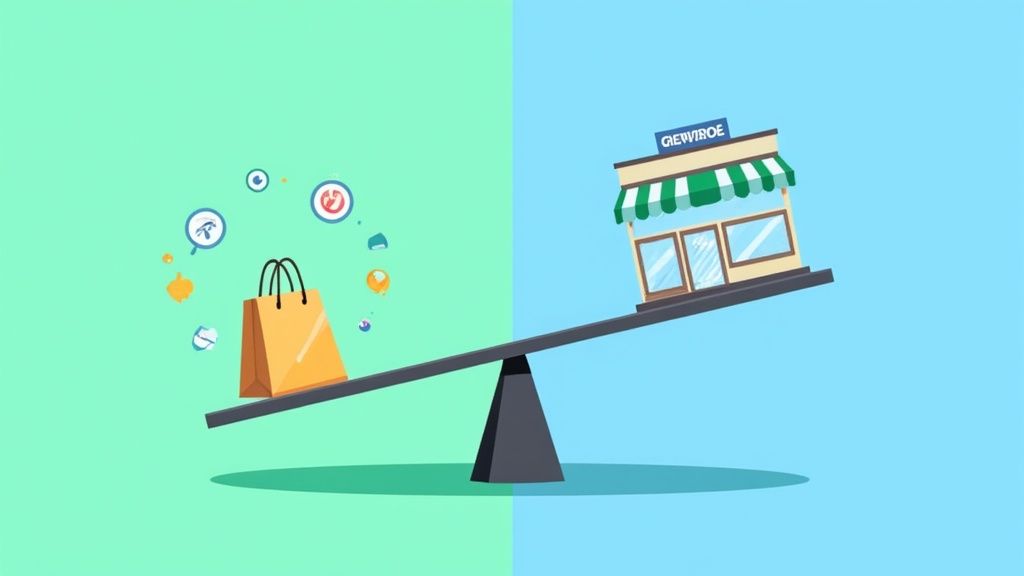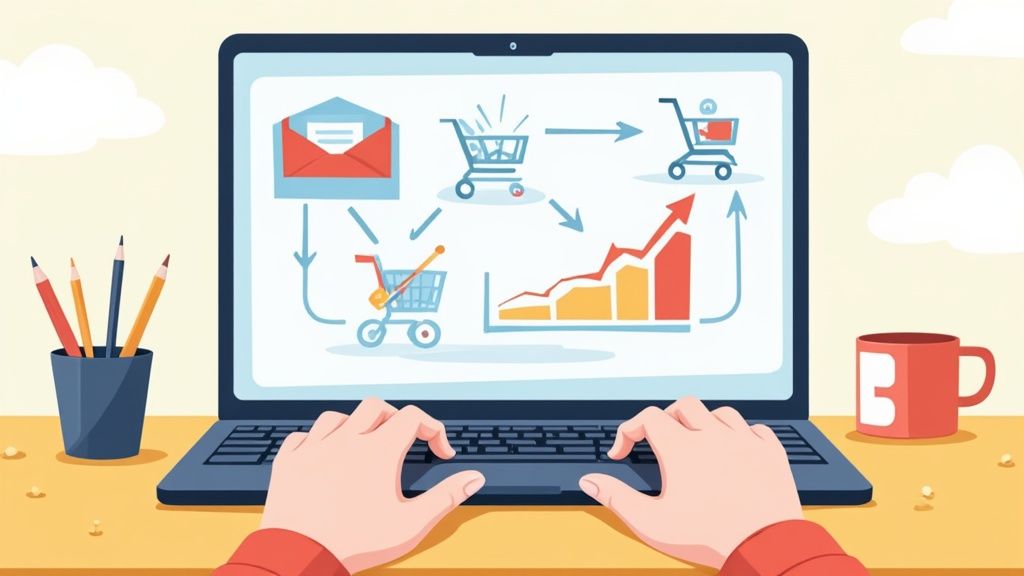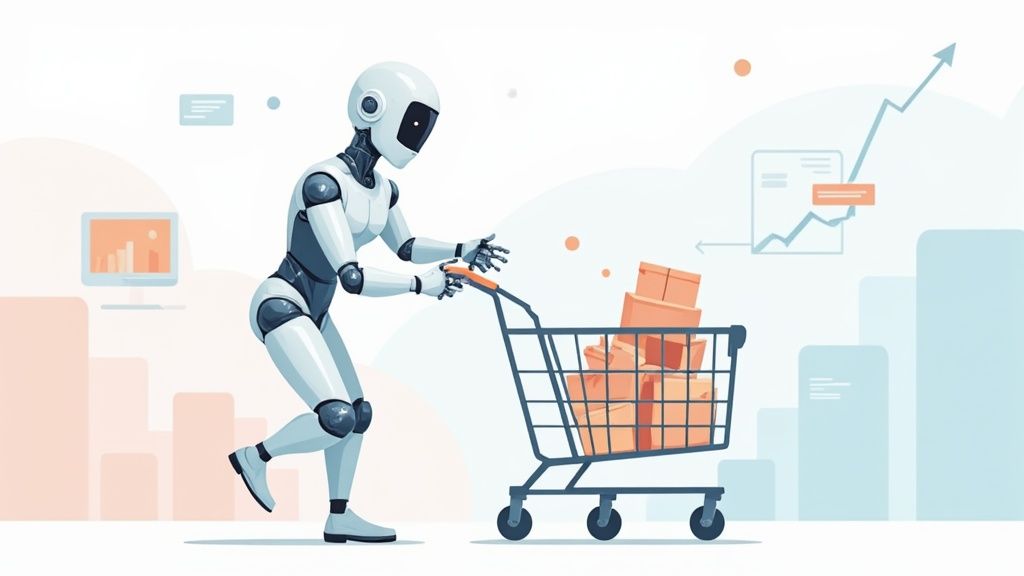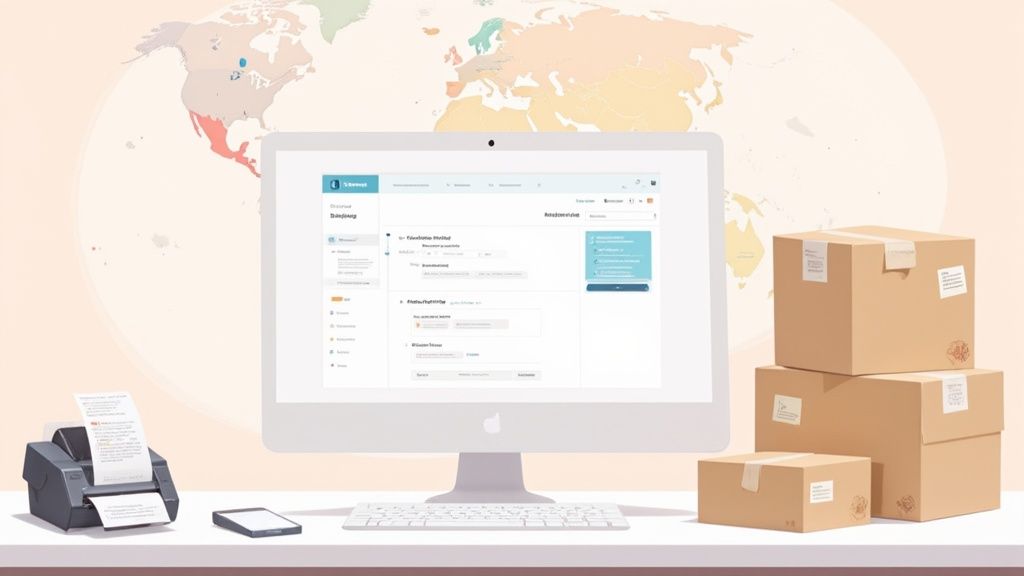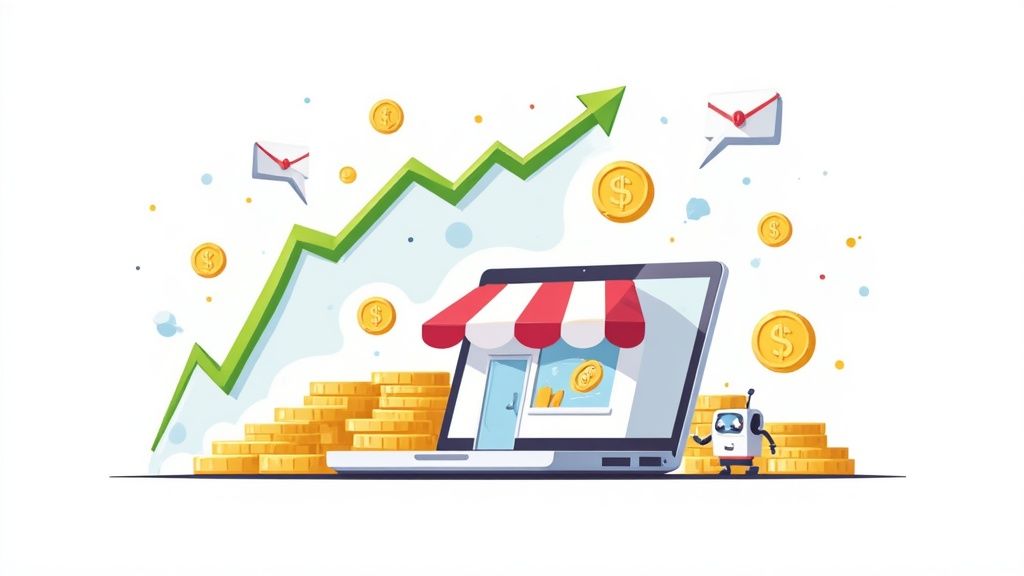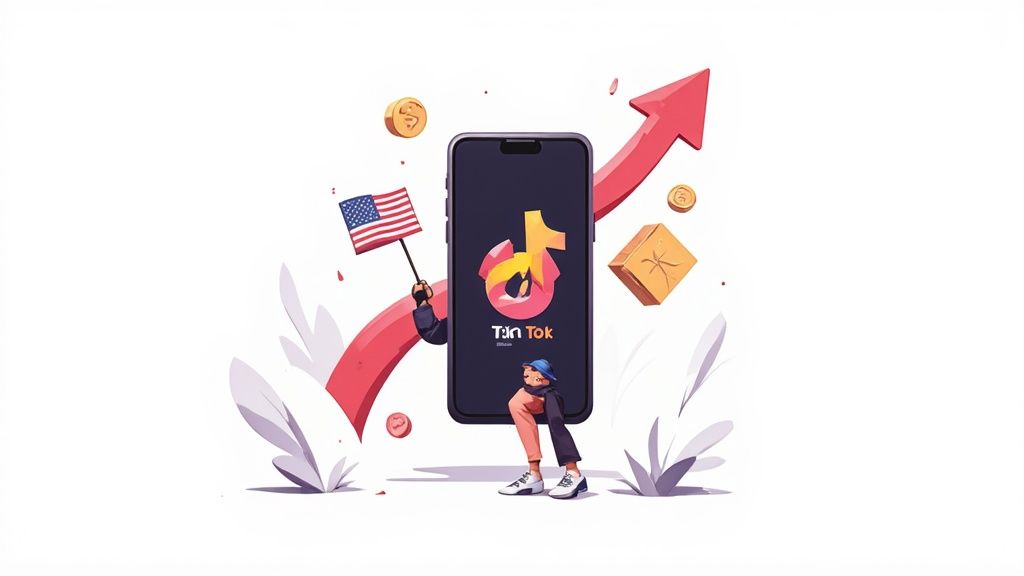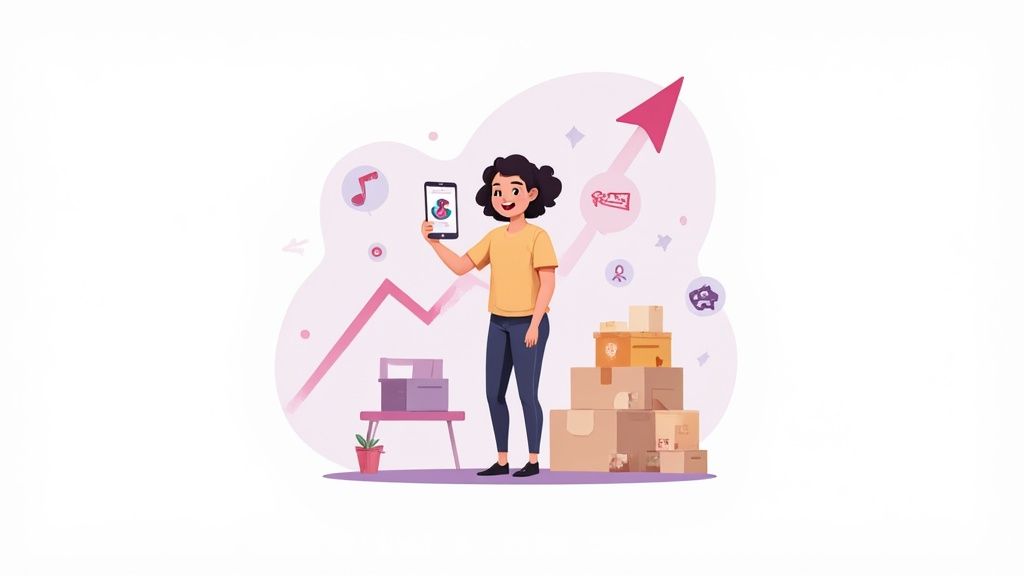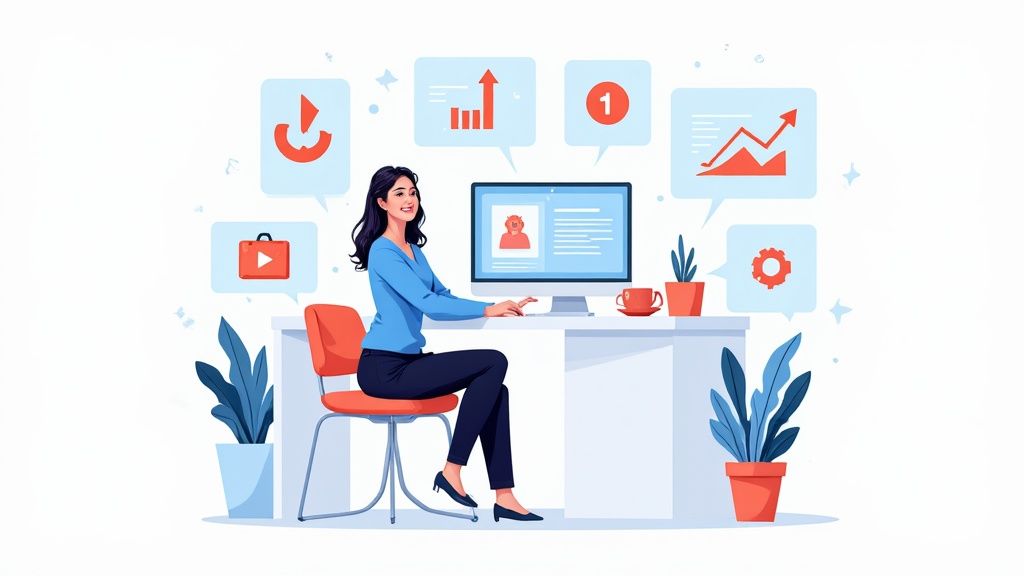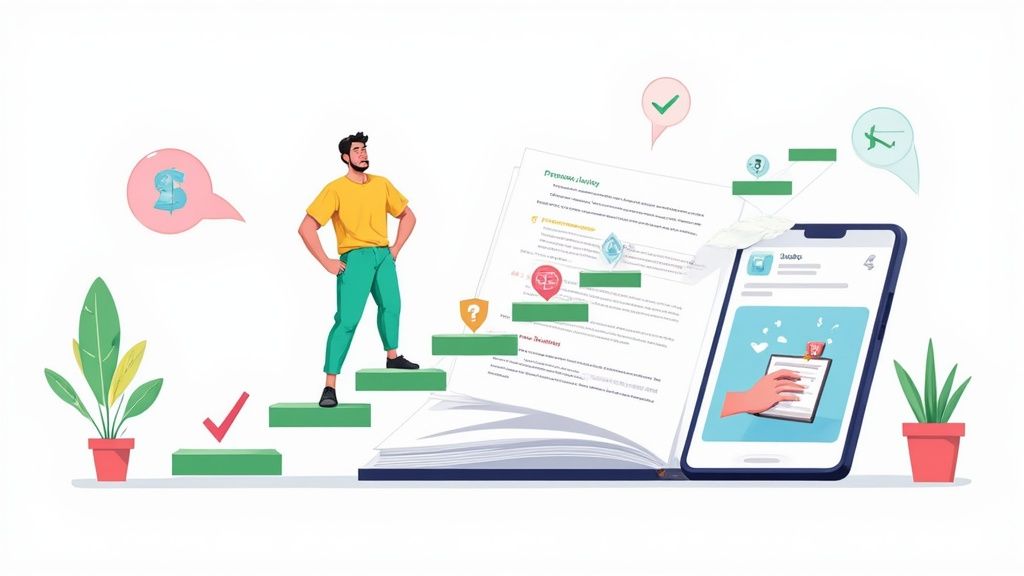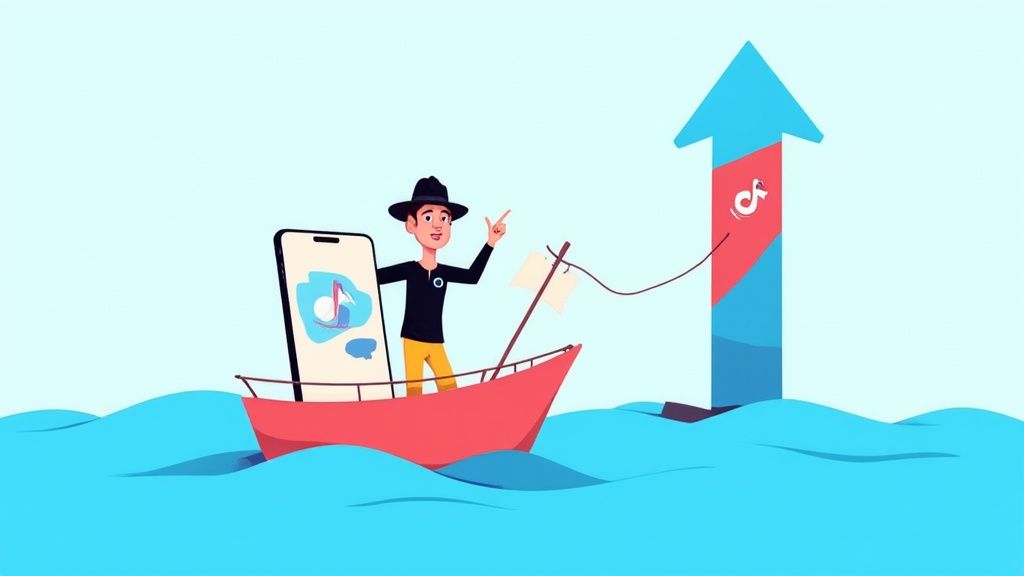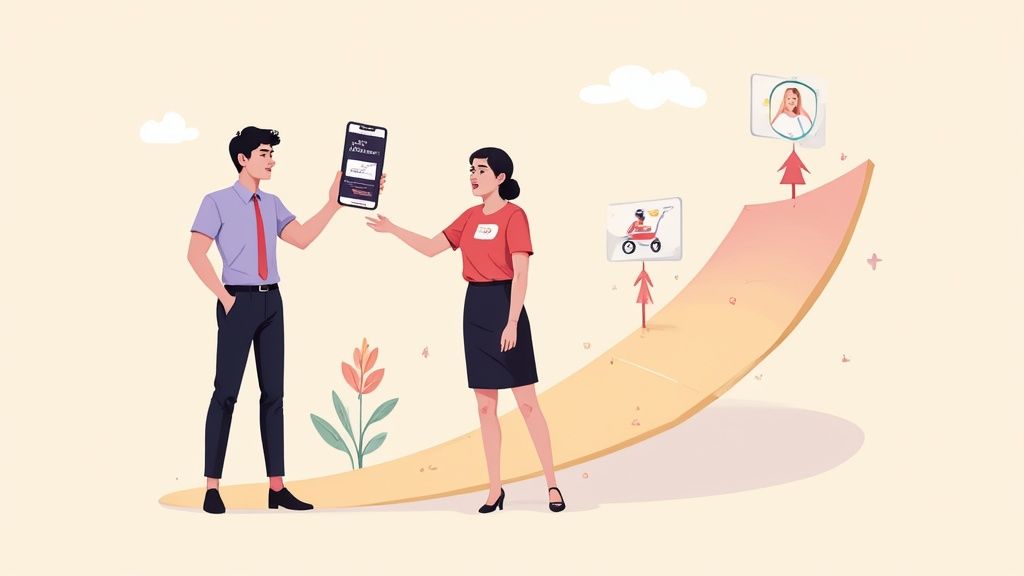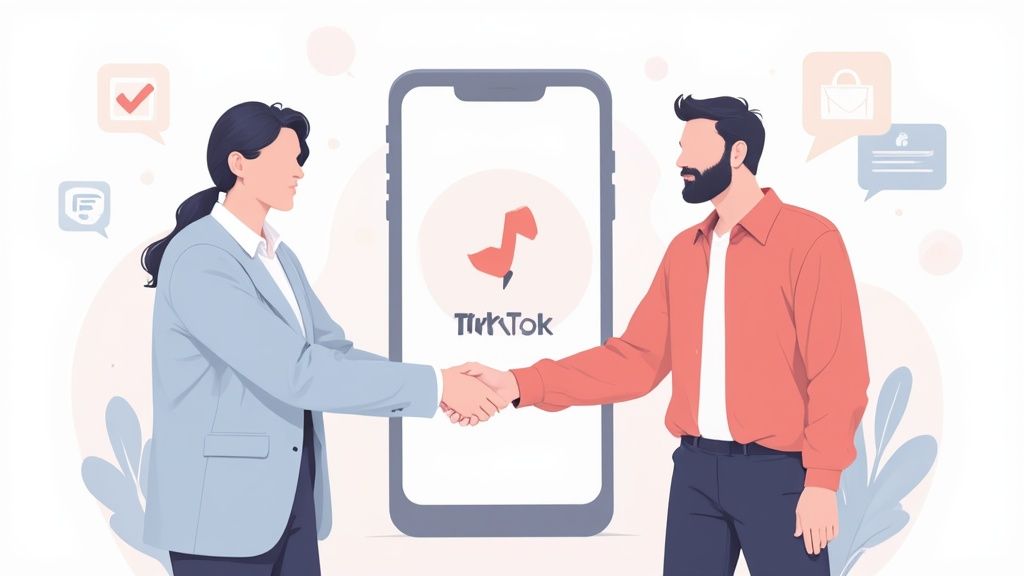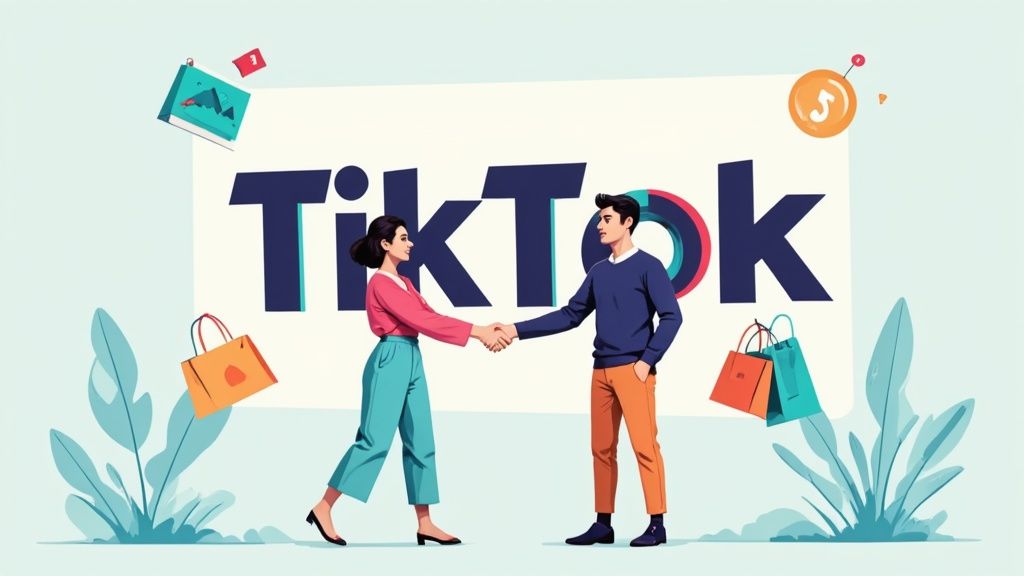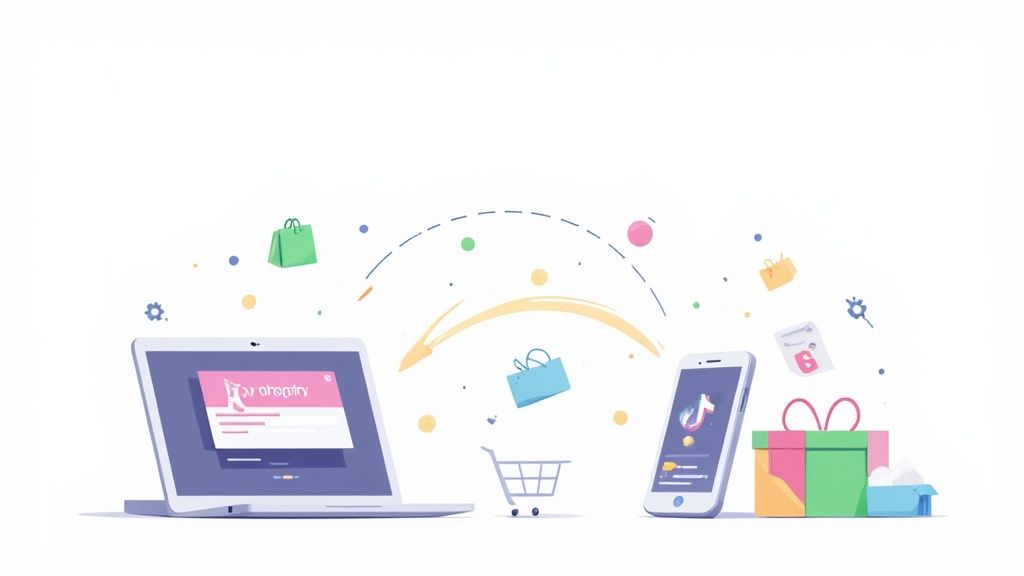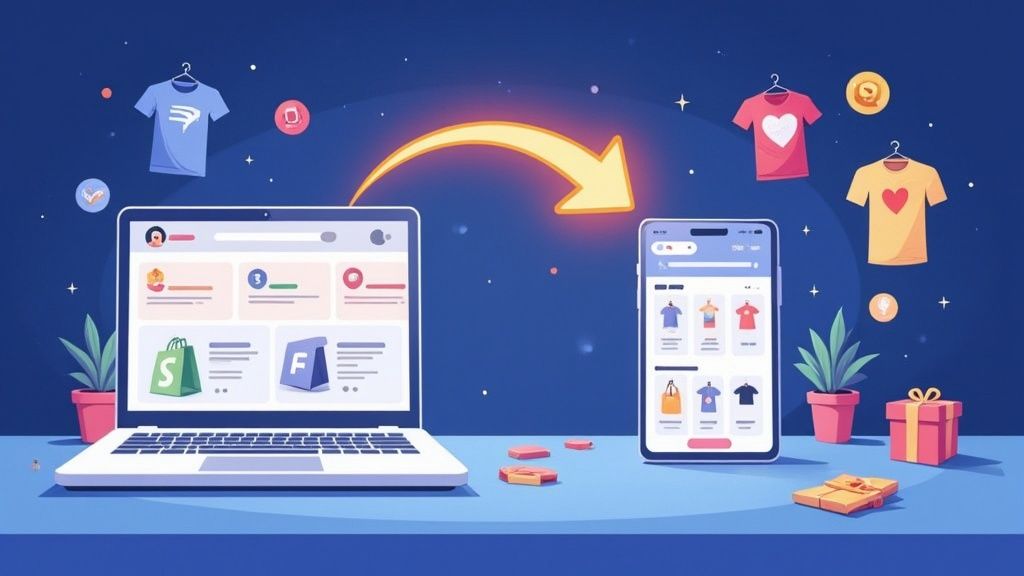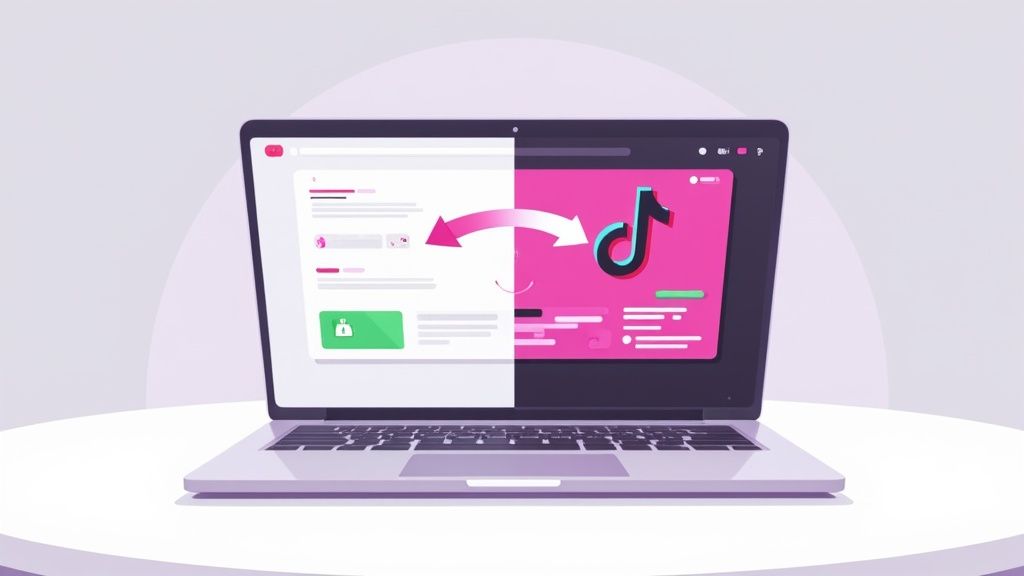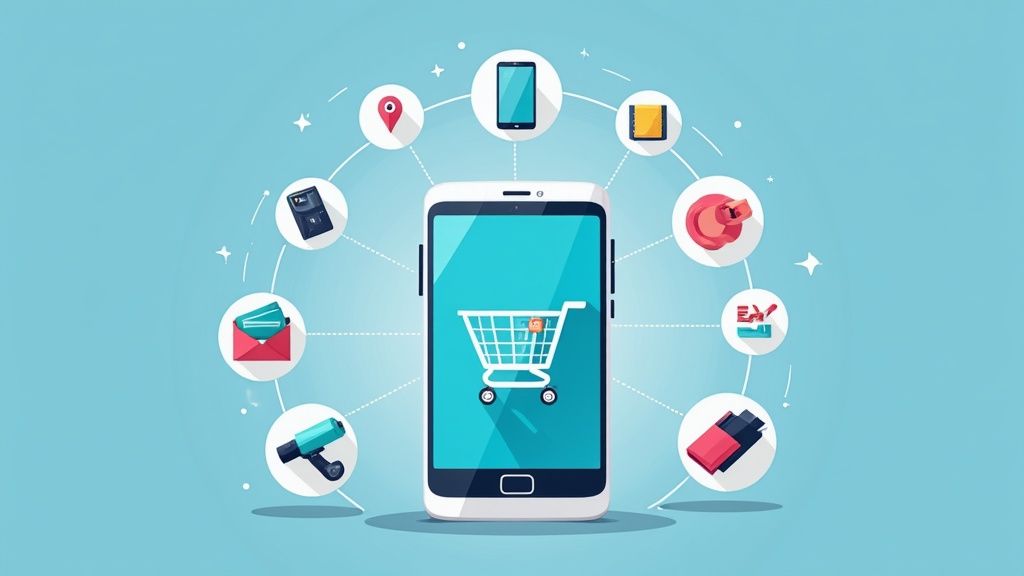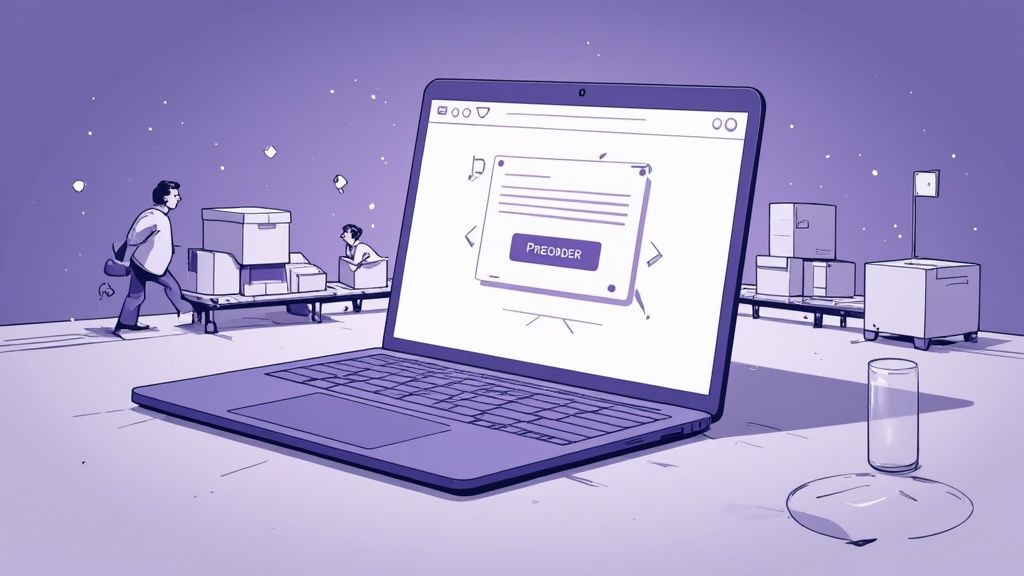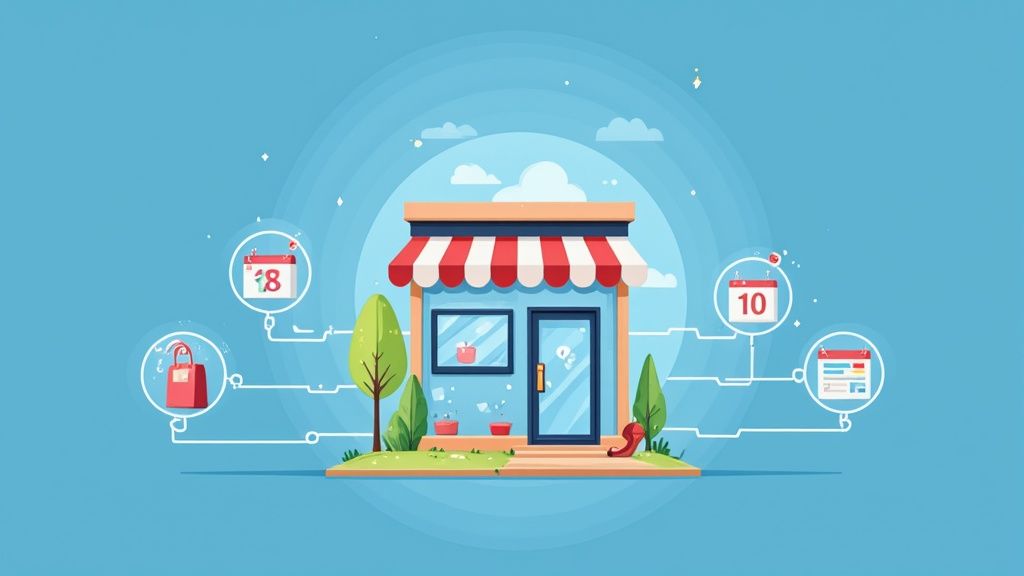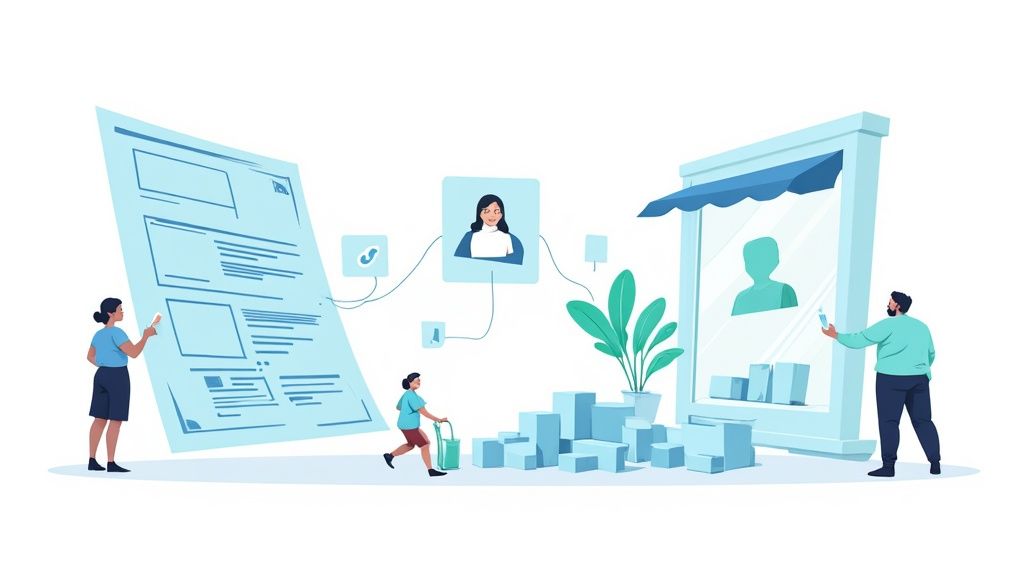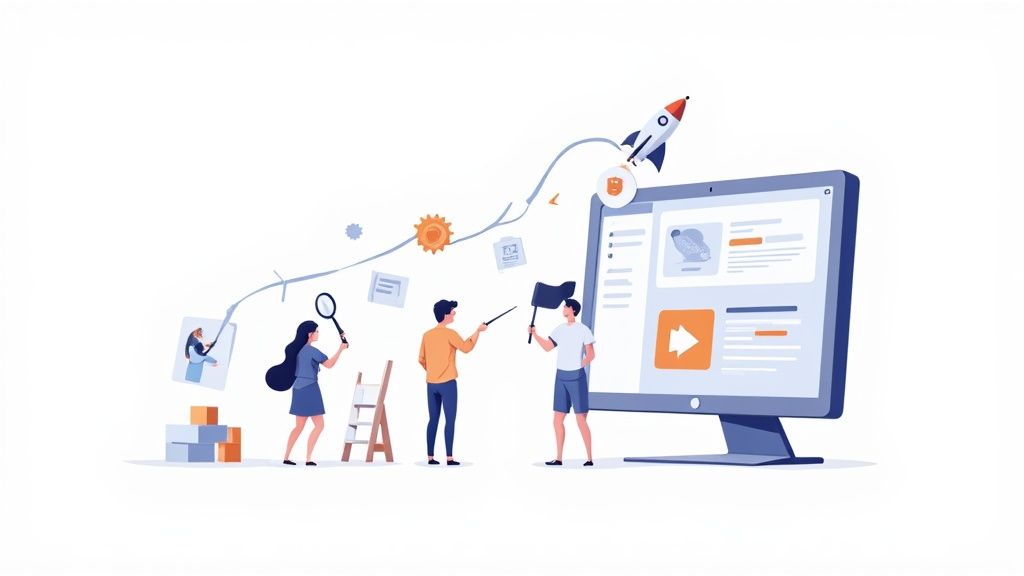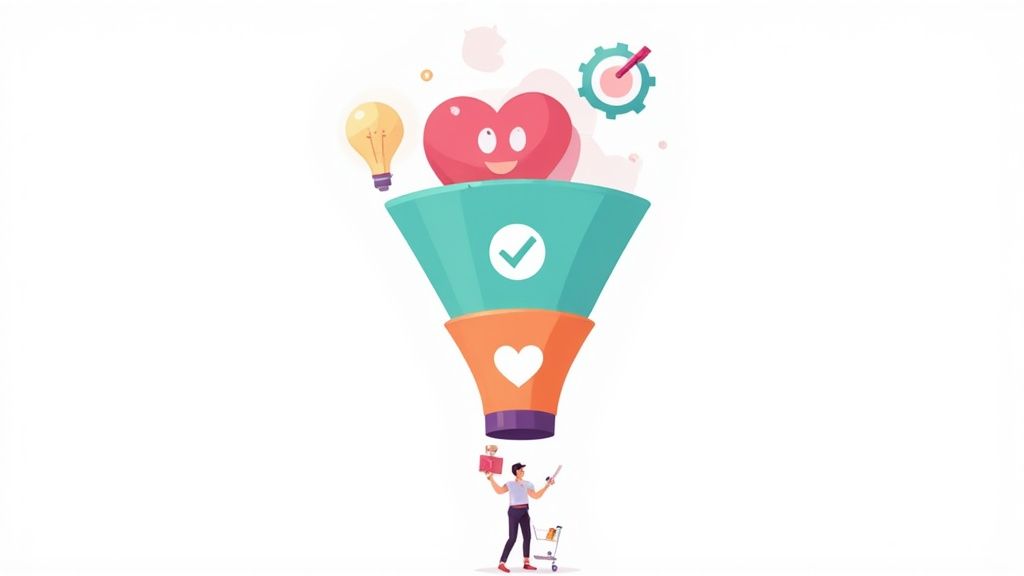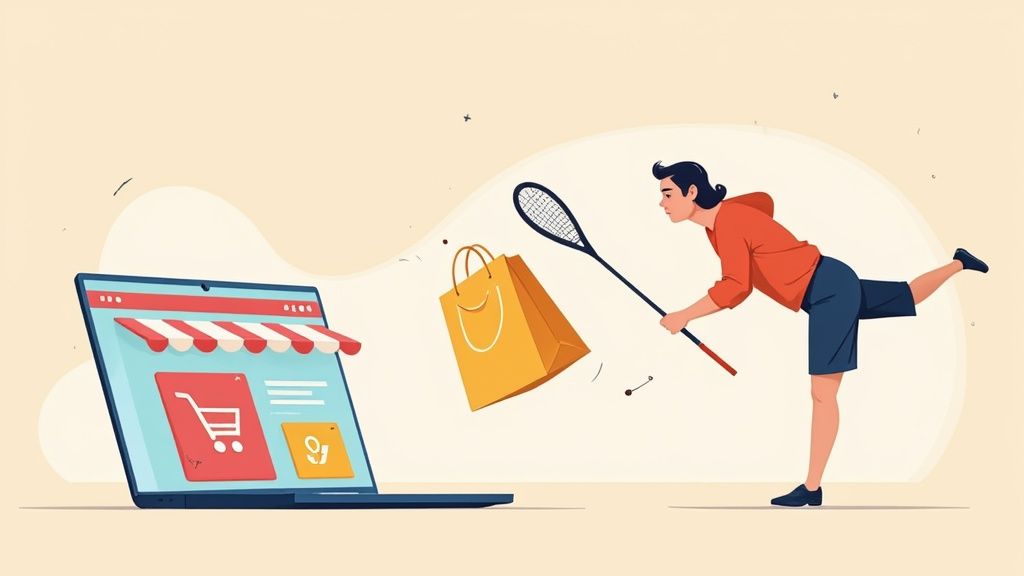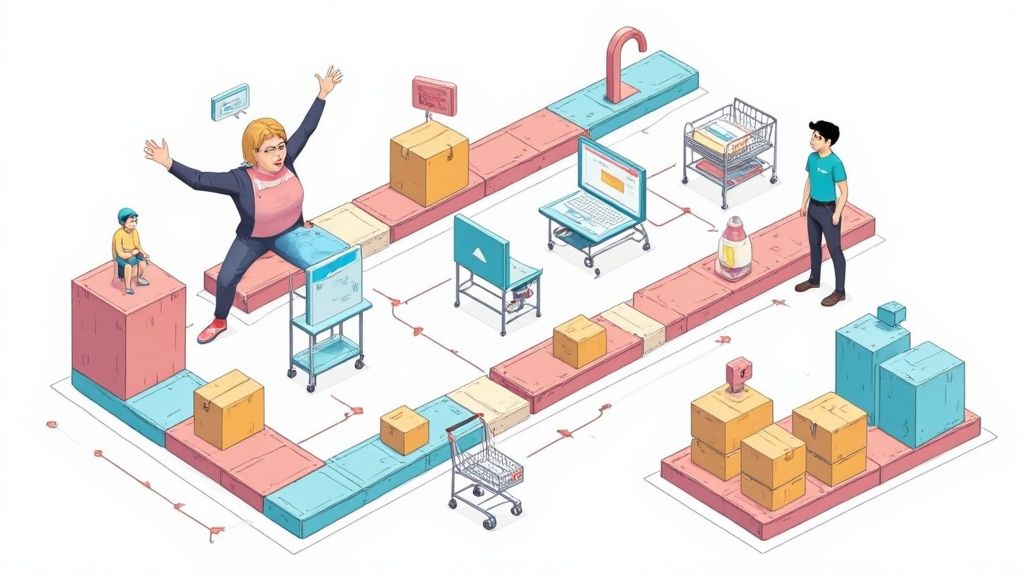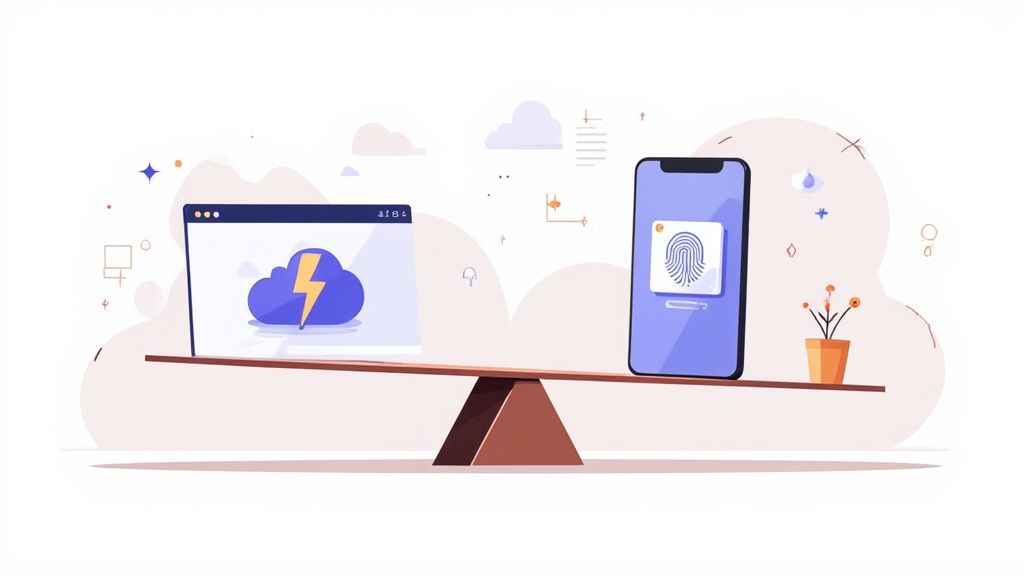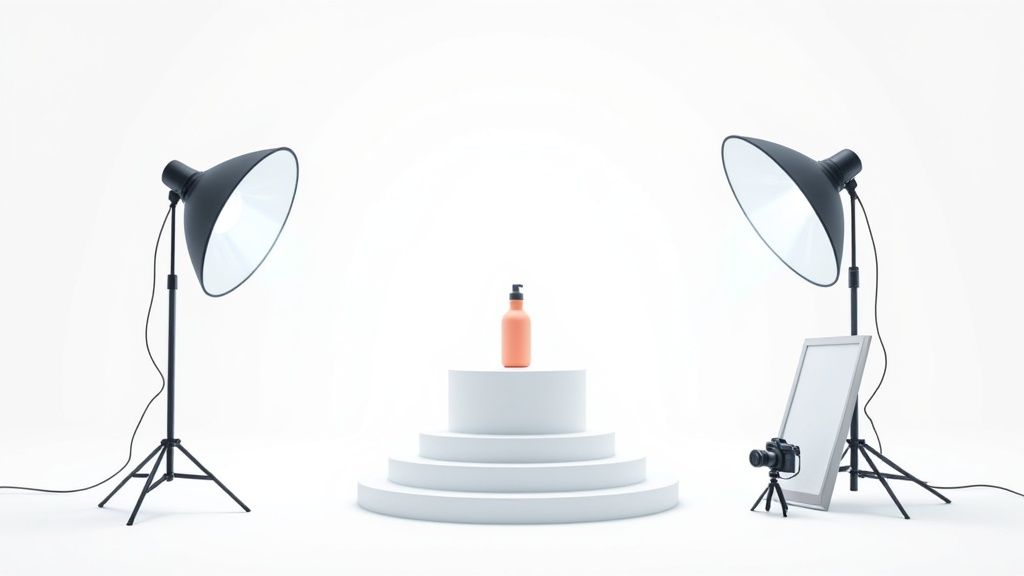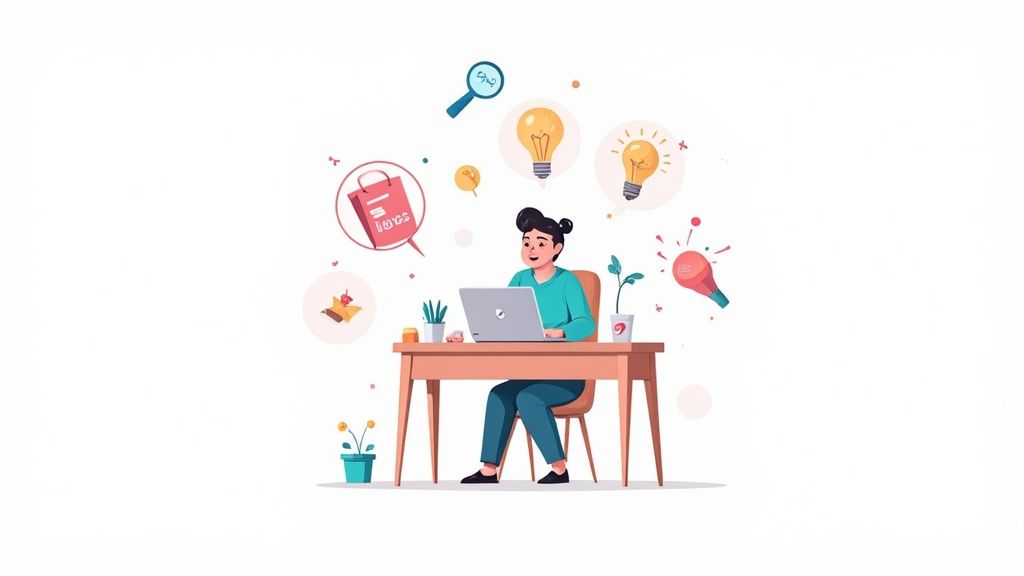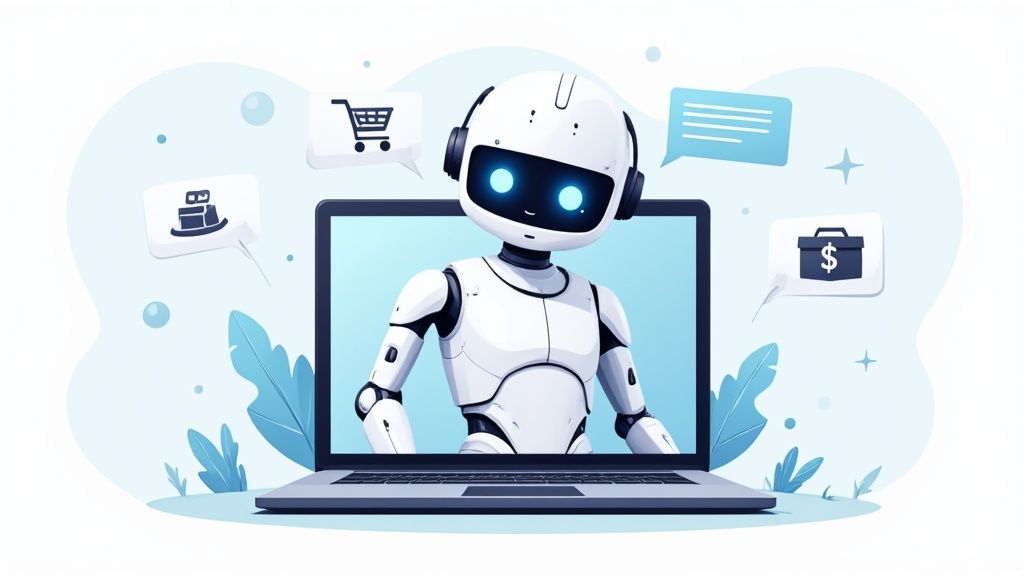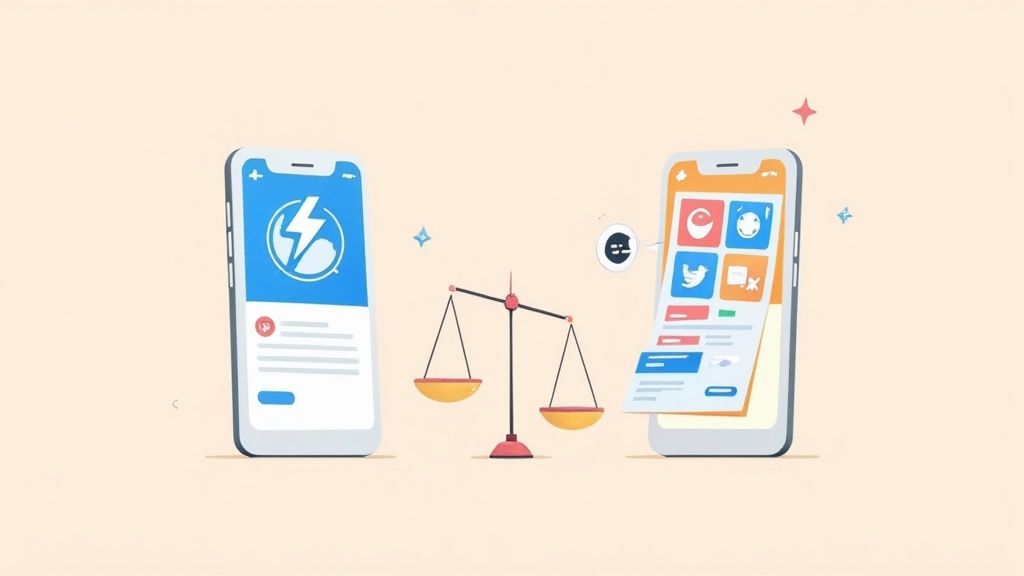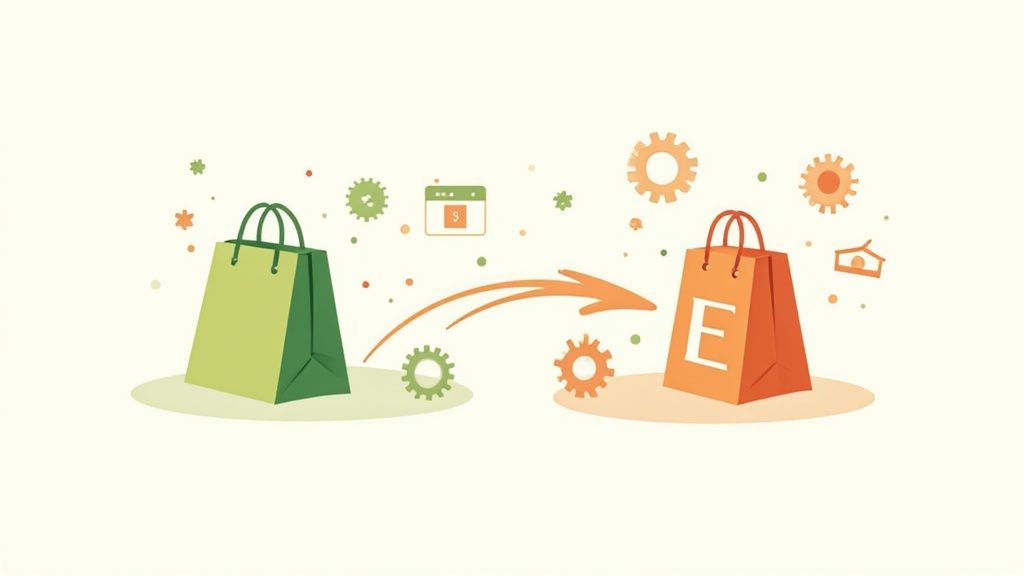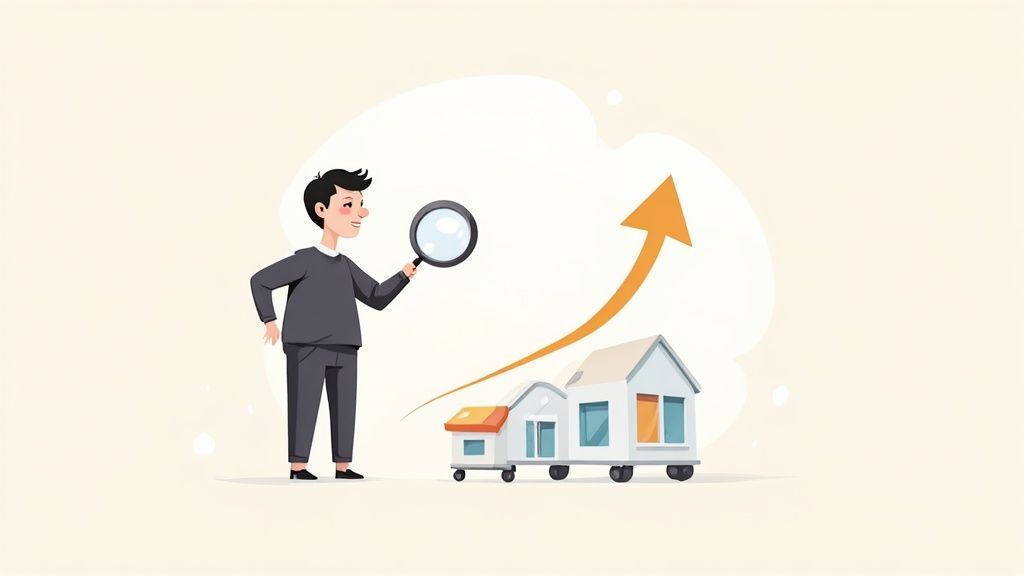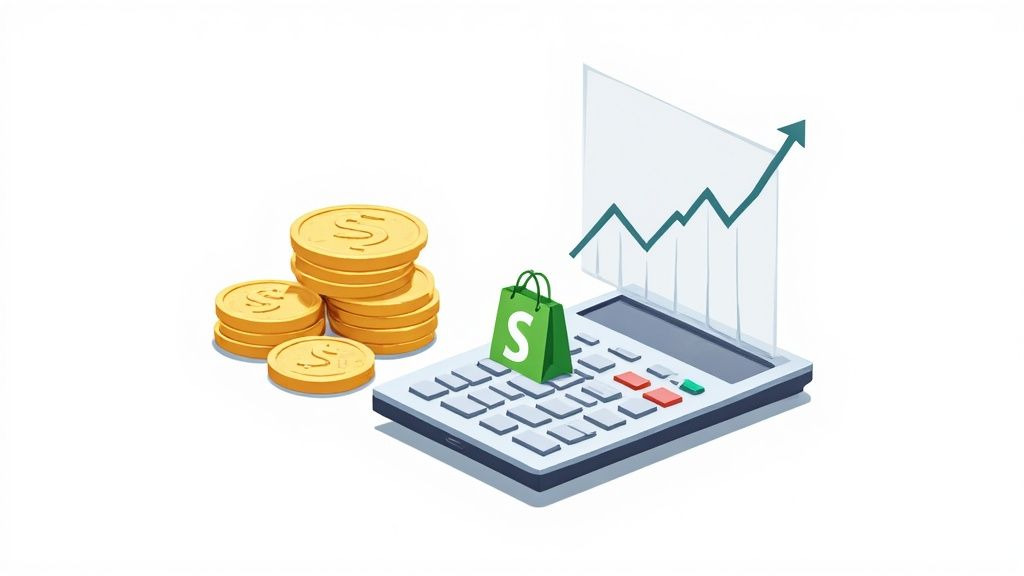
The Evolution of Modern Shopify Marketing

The way businesses sell and market online has changed dramatically, particularly for merchants using Shopify. As more companies move their operations online, specialized Shopify marketing agencies have emerged to meet their unique needs. These agencies recognize that standard marketing approaches often miss the mark for Shopify stores, which require deep platform expertise to achieve real results.
Why Traditional Marketing Falls Short
Generic marketing tactics that cast a wide net aren't effective for today's e-commerce businesses. Take TV advertising - while it reaches millions of viewers, only a tiny percentage might be interested in your specific products. Traditional methods also lack the precise tracking and measurement tools needed to optimize campaigns effectively. For instance, without detailed analytics, it's nearly impossible to know which marketing efforts drive actual sales and which are wasting your budget. Success in modern e-commerce requires targeted strategies backed by solid data.
The Rise of the Shopify Marketing Agency
Shopify marketing specialists bring invaluable platform-specific knowledge to the table. They know exactly how to use Shopify's built-in marketing tools and can integrate the right mix of apps to boost sales. For example, they understand how to set up email flows that automatically re-engage customers and recover abandoned carts. Think of them as expert mechanics for your online store - they know precisely how each component works together and can fine-tune your marketing engine for peak performance.
The Power of Platform Expertise
What sets Shopify marketing agencies apart is their deep understanding of the platform's ecosystem. They stay current with every Shopify update and know which apps and tools will genuinely help grow your business. This focused expertise allows them to create highly targeted campaigns that connect with your ideal customers. For example, they can optimize your store's checkout process to reduce cart abandonment, tweak product pages to boost conversions, and set up tracking to measure results accurately. Working with specialists means you get strategies specifically designed for Shopify success, not generic marketing plans that ignore the platform's unique features and opportunities.
Essential Services That Drive Store Growth
Working with a Shopify marketing agency means finding a skilled partner who can meaningfully improve your business results. The best agencies go beyond basic marketing activities to offer carefully crafted services that work together to expand your store's reach and boost sales. Let's explore the key services that make the biggest impact.
Email Marketing Automation That Converts
Smart email marketing focuses on creating personalized customer journeys that build relationships and drive sales. This starts with welcome sequences that introduce new subscribers to your brand and showcase your top products. It also includes well-timed abandoned cart reminders with strategic incentives to complete purchases. The best Shopify marketing agencies know how to use automation tools and specialized apps to craft these email sequences for maximum impact. When done right, this approach significantly improves conversion rates and helps create long-term customer relationships.
Conversion Rate Optimization (CRO): Turning Visitors Into Buyers
Getting visitors to take action on your site requires careful analysis and optimization. A skilled agency will dig into your website data to find where customers get stuck or leave. They'll test different versions of product pages, simplify checkout flows, and add compelling calls-to-action based on real user behavior. The focus stays on using data to understand what's preventing purchases and fixing those issues. This methodical approach leads to more completed sales and higher revenue.
Multi-Channel Campaign Management: Reaching Your Audience Everywhere
Most customers interact with brands across multiple platforms before making a purchase. That's why strong marketing agencies create campaigns that work together across email, social media, paid ads and other channels. For example, they might start with Facebook ads targeting specific customer groups, then follow up through email with personalized offers. This coordinated approach keeps your message consistent while reaching customers wherever they spend time online. The result is better brand recognition and more sales.
Integrated Services for Superior Results
Think of marketing like a car engine - individual parts working together create forward motion. Similarly, when all marketing services align toward common goals, they generate more momentum than scattered efforts. A good agency coordinates every element, from ads to emails to social media, so they complement each other. This makes it easier to track what's working and refine the strategy over time. The end result is marketing that consistently delivers strong returns on your investment through coordinated, data-driven campaigns working in harmony.
Understanding Performance Metrics That Matter

When working with a Shopify marketing agency, it's essential to focus on real business results rather than surface-level stats. While follower counts and likes might look impressive, they don't necessarily translate to sales. The most valuable metrics directly show how marketing efforts impact your bottom line and business growth. Understanding these key metrics helps you make better decisions and ensure your marketing agency delivers meaningful results.
Key Performance Indicators to Watch
Here are the most important metrics to track when evaluating your Shopify marketing strategy and agency performance:
Conversion Rate: This shows what percentage of visitors make a purchase on your site. The average Shopify store converts around 1.4% of visitors, but top performers achieve over 3% with effective optimization. For example, professional agencies help stores boost conversions through targeted landing pages and optimized checkout flows.
Customer Lifetime Value (CLTV): This represents how much revenue you can expect from each customer over time. Smart agencies focus on strategies that not only bring in new customers but also encourage repeat purchases through loyalty programs, email marketing, and personalized recommendations.
Return on Ad Spend (ROAS): This metric shows how much revenue your ads generate per dollar spent. A ROAS of 4:1 means you earn $4 for every $1 spent on ads. Experienced agencies continuously test and refine ad campaigns to improve this ratio.
Mobile Conversion Rate: With most shoppers now buying on phones and tablets, mobile performance is critical. Good agencies optimize the mobile experience through faster load times, simplified navigation, and mobile-friendly designs that make purchasing easy on any device.
Average Order Value (AOV): This is the average amount customers spend per order. Agencies can increase AOV through smart product recommendations, bundle offers, and strategic upsells during checkout - for instance, suggesting complementary items based on what's in the cart.
Setting Realistic Goals and Identifying Red Flags
Success requires clear communication and realistic expectations between you and your agency. While dramatic overnight improvements are rare, good agencies set achievable goals based on your current metrics, industry standards, and competitive analysis. Be wary of agencies that dodge questions about results or focus only on vanity metrics - professional partners provide regular, transparent reporting that clearly shows how their work drives business results. Regular check-ins help you adjust strategy as needed and stay competitive in the fast-moving ecommerce space. The best agencies view metrics as tools for continuous improvement rather than just numbers to report.
Mastering On-Site Conversion Optimization
Once you have a solid grasp of your performance metrics, the next key focus is turning more of your Shopify store visitors into paying customers. This requires carefully examining and optimizing every aspect of the shopping experience to make purchasing both easy and appealing.
Understanding the Customer Journey
The first step is mapping out exactly how customers move through your store - from initial landing to final checkout. By analyzing visitor behavior patterns, a Shopify marketing team can identify where people spend time browsing and, more importantly, where they leave without buying. For example, if data shows many abandoning carts during shipping cost calculation, that signals a clear friction point to address. Tools like heatmaps provide visual insights into how visitors interact with different page elements.
Leveraging Psychological Triggers
Smart marketers tap into core psychological principles that drive buying decisions. Scarcity indicators, like showing "Only 2 left!" or countdown timers for special offers, create urgency that prompts faster action. Customer reviews and testimonials provide social proof that builds trust and confidence in your products. When used authentically, these psychological triggers help shoppers feel more comfortable making a purchase.
Strategic Popup Implementation and Abandoned Cart Recovery
While popups can be effective for capturing leads and sales, timing and value are critical. Random, aggressive popups often drive visitors away. The key is delivering relevant offers at natural moments - like an exit-intent discount for first-time visitors about to leave. For shoppers who add items to cart but don't complete checkout, automated abandoned cart emails with personalized reminders and incentives can recover up to 40% of those potential sales.
Personalized Messaging for Increased Engagement
Shoppers now expect experiences tailored to their interests and needs. By segmenting your audience based on past purchases, browsing patterns and demographics, you can show each visitor the most relevant products and messages. Someone who recently bought hiking boots might see suggestions for complementary gear like socks or backpacks. This targeted approach leads to higher engagement since customers feel understood. Testing different messaging with each segment helps continuously improve results.
Building a Mobile-First Revenue Engine

Mobile shopping has become the primary way people discover and buy products online. Having a mobile-optimized Shopify store is now essential for ecommerce success. Smart marketing agencies prioritize creating smooth, engaging mobile experiences that drive sales, recognizing that mobile is often the main revenue source for online businesses.
Optimizing the Mobile Customer Journey
Understanding how customers shop on mobile requires careful attention to each step of their experience. From discovering products on social media to completing a purchase, every interaction needs to work seamlessly on smaller screens. For instance, agencies create mobile-specific ads on Instagram and TikTok that link directly to product pages designed for mobile viewing. This removes friction and makes it easy for customers to buy.
Mobile UX and Design Best Practices
The mobile shopping experience needs to be quick and intuitive. This means implementing clear navigation, prominent buy buttons, and fast checkouts optimized for smaller screens. Just like a well-designed sports car needs every component working perfectly together, mobile sites need all elements aligned for peak performance. Slow loading times or clunky navigation will quickly send shoppers elsewhere.
Content Tailored for Mobile Consumption
People interact with content differently on phones versus computers. Short, scannable text combined with strong visuals works best for mobile users who are often multitasking or on the go. Videos are especially effective for showcasing products since they're easy to watch on mobile. The key is providing information in bite-sized pieces that mobile shoppers can quickly understand.
Mobile Conversion Rate Optimization (CRO)
The ultimate goal is turning mobile browsers into buyers. By testing different page layouts, checkout flows, and promotional pop-ups, agencies find what works best for driving mobile sales. Adding convenient payment options like Apple Pay and Google Pay removes payment friction. This testing and optimization process helps maximize revenue from mobile traffic through incremental improvements backed by real user data.
Selecting Your Perfect Agency Partner

Running a successful Shopify store often requires expert guidance and support. While many store owners start out managing everything themselves, partnering with a specialized marketing agency can take your business to new heights. The key is finding an agency that truly understands your needs and goals. Let's explore how to evaluate potential agency partners to find your ideal match.
Key Questions to Ask Potential Agencies
Start your search by asking targeted questions that reveal an agency's capabilities and approach. This helps you assess if they have the right expertise and mindset to help grow your business:
Shopify Experience: Ask about their track record with Shopify specifically. How many stores have they worked with? What results have they achieved? Do they regularly update their Shopify knowledge? An agency focused on Shopify will understand the platform's unique features and opportunities.
Strategy Development: Learn how they create and execute marketing plans. What's their process for understanding client businesses? How do they set goals and measure progress? Look for agencies that base decisions on data while tailoring strategies to each client.
Communication Style: Find out how they keep clients informed. What metrics do they track? How often do they provide updates? Clear, consistent communication builds trust and keeps projects on track.
Costs and Commitments: Get detailed information about pricing structures, package inclusions, and contract terms. Understanding the fine print helps avoid surprises later.
Assessing Cultural Fit and Long-Term Compatibility
Technical skills matter, but cultural alignment is just as important for a lasting partnership. Consider these aspects:
Values and Vision: Does the agency's approach match your brand's principles? Shared values lead to better collaboration and results.
Team Structure: Who will you work with directly? How are responsibilities divided? Knowing your points of contact helps establish smooth workflows.
Communication Methods: Do they respond promptly and clearly? Is their style professional yet approachable? Regular, effective communication prevents misunderstandings.
Growth Mindset: How do they plan for the future? Can they adapt as your business evolves? Forward-thinking agencies help clients stay competitive.
Comparing Proposals and Pricing Models
When reviewing agency proposals, examine the complete picture:
Service Details: Check that proposals clearly list all included services. Are there additional fees or services you might need later?
Timeline and Deliverables: What specific results can you expect? When will different phases be completed? Clear goals and deadlines keep projects focused.
Price Options: Compare different service tiers or custom packages. Which option best matches your budget and needs?
Unique Benefits: What makes each agency special? How do their strengths align with your priorities? Understanding their standout qualities helps inform your choice.
Remember that finding the right agency partner involves give and take. Be upfront about your budget and expectations, but also listen to their insights and suggestions. A strong agency will work with you to find solutions that benefit both parties. Don't hesitate to negotiate terms - the goal is building a partnership that drives real results.
Looking for a proven Shopify marketing agency committed to your success? Consider ECORN. Explore ECORN's subscription packages and learn how their Shopify expertise can grow your online store.






